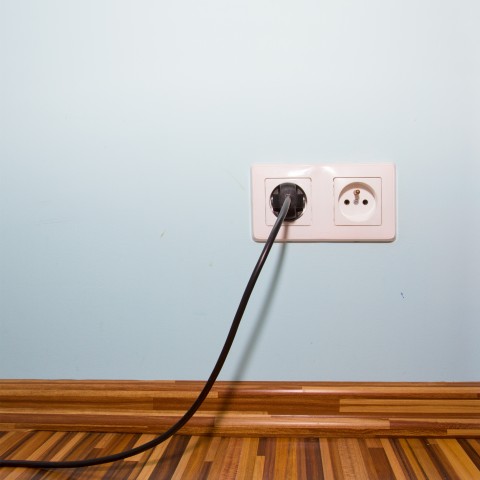
Since we live in this awesome era of technological miracles, we get to enjoy all sorts of smart, advanced, and helpful marvels on a daily basis. Which device do you use the most? I’m guessing it would be your phone.
While most people prefer texting or video calls, knowing how to make a proper phone call is a crucial skill. You probably won’t text your doc to make an appointment, the police probably won’t be up for a Zoom session, and sometimes you don’t have time to wait for your buddy’s reply—you need to speak to them pronto.
Learning Czech phone call phrases, then, is a logical next step in your language learning journey.
But…taking or making a phone call in a foreign language might be a little stressful.
At the beginning of my career (when I thought it would be a good idea to be someone’s assistant instead of working on my own thing), I had to make phone calls in English on a daily basis. Back then, people actually used their phones to call a cab, book a hotel, or even discuss work stuff. (Can you believe that? Could have been an email.)
I was nervous and it often didn’t go well because not seeing the other person makes it a little more difficult to understand what they’re saying. Plus, I had to deal with (often very heavy) accents, and one time I even asked a French guy if we could speak English. There was a long pause on the other end of the line, followed by: “I AM speaking English.”
You don’t need to worry about this, though. I’m guessing you’ll be speaking mostly with native speakers and your embarrassment hazard will be much lower. Thanks to this article, your telephone conversations in Czech will be a breeze.
There are a few rules you should follow and a few phrases to remember. Nothing complicated. You’ll be done in 20 minutes. Let’s learn these Czech phone call phrases together.

Phones are one of the most important devices in our modern lives.
 Table of Contents
Table of Contents
- Basic Phone Call Vocabulary
- Answering the Phone: Greetings in Czech
- How to Introduce Yourself Over the Phone in Czech
- Czech Phone Call Phrases: I Just Called to Say…
- May I Speak to…
- Please Hold
- Not Available? Leave a Message!
- Didn’t Catch That? (Asking for Clarification)
- Ending a Phone Call in Czech
- How it Goes in Real Life: A Telephone Conversation in Czech
- How CzechClass101.com Helps You Learn Czech in a Fun Way
1. Basic Phone Call Vocabulary
I figured we should start at the beginning. Here are the most common words that you might find useful.
| English | Czech |
| Phone call | Telefonovat |
| To make a call / To call | Zavolat |
| To answer a phone | Přijmout hovor (“To accept a phone call”) |
| To dial | Vytočit |
| Phone number | Telefonní číslo / Telefon |
| Would you give me your phone number? | Dáš mi na sebe telefon? |
| To call back | Zavolat zpátky |
| To hang up | Zavěsit |
| Ringtone | Vyzváněcí tón |
| A text | Esemeska / SMS / Zpráva (“Message”) |

Zavěsit – “To hang up”
2. Answering the Phone: Greetings in Czech
Alright, I know that a lot of us don’t like talking on the phone. And (honestly) how many times have you waited for your phone to STOP ringing so that you could go back to scrolling/gaming/shopping?
I’m guilty of this too.
Answering your phone in a foreign language might seem scary…but it’s not.
Simply say:
- Haló? or Prosím? (“Hello?” or “Please?”)
- Prosím is definitely more common, and yes, it’s a very versatile word. Haló is a lot more old-timey.
- Ano? (“Yes?”) is also an option.
Remember that Czech greetings are more specific than those in English—you’ll need to use a different one when speaking to your friend versus speaking to your boss. You can find more greetings in Czech here. In case you struggle with saying hello in real life, check out this article.
3. How to Introduce Yourself Over the Phone in Czech
| English | Czech |
| This is [name] from [company]. | Tady [name] z [company] / volám z [company]. |
| This is [name]. | Tady [name]. |
| Good day, this is [name]. | Dobrý den, tady [name]. |

Vytočit číslo – “To dial a number”
4. Czech Phone Call Phrases: I Just Called to Say…
I assume most of your calls will be related to appointments and reservations.
If you need to make a doctor’s appointment, make sure you know the appropriate vocab. You’ll find more useful Czech phrases here.
In case you’re in perfect health but hungry, Czech out this lesson about making dinner reservations in Czech.
| English | Czech |
| I’m calling to ask about… | Volám, abych se zeptal/a na… |
| I’d like to speak with someone about… | Chci s někým mluvit o… |
| I want to ask about… | Chci se zeptat na… |
| I want to confirm… | Chci potvrdit… |
| I want to make a reservation. | Chci udělat rezervaci… |
| I want to make an appointment. | Chci se objednat. |
| I’d like to make a check-up appointment. | Chtěla bych se objednat na prohlídku. |
| I had a missed call from this number. | Mám od vás zmeškaný hovor. |
| Who is this? | Kdo je to? |
| Who is calling? | Kdo volá? |
5. May I Speak to…
Now that you’re actually speaking to a real native Czech speaker, you need to let them help you.
Who are you calling?
| English | Czech |
| May I speak to [name]? | Můžu mluvit s [name]? |
| I want to speak to [name]. | Chci mluvit s [name]. |
| I’d like to speak to [name]. | Rád/a bych mluvil/a s [name]. |
| I’m calling for [name]. | Volám [name]. |
| Is [name] there? | Je tam [name]? |
| I am calling because of… | Volám kvůli… |
6. Please Hold
You might find yourself in a situation where a short wait will be necessary, which will likely happen in a professional setting or if you need to check your schedule while making an appointment.
| English | Czech |
| I’ll put you on hold for a second. | Počkejte okamžik, prosím. |
| Just a moment, let me check. | Moment, zjistím to. |
| Let me put you through to his/her office. | Přepojím vás do jeho/její kanceláře. |
| Stay on the line, please. | Nezavěšujte, prosím. |
| Wait a moment, please. | Prosím počkejte. |
| I’ll check my schedule. | Podívám se do diáře. |

Kdo volá? – “Who is this?”
7. Not Available? Leave a Message!
In case the person you’re calling is not available at the moment, you might consider leaving a message.
These are the most common formal Czech telephone phrases for doing so:
| English | Czech |
| Please let him know that… | Vyřiďte mu/jí prosím, že… |
| Can I leave a message? | Můžu nechat vzkaz? |
| Can he/she call me back at [phone number]? | Mohl/a by mi zavolat zpátky na číslo [phone number]? |
| Could you tell him/her that… | Mohl/a byste mu/jí vyřídit, že… |
8. Didn’t Catch That? (Asking for Clarification)
This can (and likely will) happen during a phone call in Czech. Whether it be due to a poor connection or the other person’s accent, you’ll be able to muddle through with these phrases:
| English | Czech |
| Sorry, could you say that again? | Můžete to zopakovat, prosím? |
| I’m sorry, but I’m having a hard time hearing you. I think there’s a bad connection. | Pardon, neslyším vás. Asi je špatný signál. |
| Could you spell your name for me, please? | Můžete mi vyhláskovat vaše jméno, prosím? |
| So… | Takže… |
| Just to double check… | Pro ověření… |
9. Ending a Phone Call in Czech
Congratulations, you’ve made a phone call and finally booked a table, made a dentist’s appointment, or reached out to an old friend… Now it’s time to end the call.
| English | Czech |
| Can I do anything else for you? | Můžu pro vás ještě něco udělat? |
| You’ve been very helpful. Thank you. | Moc jste mi pomohl/a. Děkuju. |
| See you at ___ on ___. | Uvidíme se v… |
| Have a great day. | Hezký den. |
| Will that be all? | Bude to všechno? |
| Until later! (as in, “See you later” / “Talk to you later”) [informal] | Zatím! |
| Until we meet again [informal] | Nashledanou / Nashle |
| Bye | Ahoj / Čau / Měj se (literally: “have a good one”) |
10. How it Goes in Real Life: A Telephone Conversation in Czech
That’s just about it, but before you go, here are two sample phone calls in Czech.
An Informal Phone Conversation in Czech
Let’s say you want to meet up with your friend for brunch. You (person A) call them (person B) to figure out the details.
- Notice the greetings and the use of informal speech.
A: Ahoj, chci se zeptat, jestli nechceš v sobotu zajít na brunch.
(“Hi, I wanted to ask if you’d like to do brunch this weekend.”)
B: To by bylo super. V kolik?
(“Sounds awesome. What time?”)
A: V 10?
(“10 a.m.?”)
B: Dobře, budu se těšit.
(“Okay, looking forward to it.”)
A: Dobře, uvidíme se v sobotu v 10. Měj se.
(“Okay, see you on Saturday. Have a good one.”)
B: Ty taky, čau.
(“You too. Bye.”)
A Formal Phone Conversation in Czech
Great, your friend agreed and now you need to make a reservation at your favorite restaurant.
- You’re going to use formal speech and formal greetings.
A: Dobrý den, tady XY. Chci udělat rezervaci na 10 hodin, tuto sobotu.
(“Hello, I’d like to book a table for this Saturday, 10 a.m.”)
B: Dobrý den, kolik vás bude, prosím?
(“Good day, how many guests, please?”)
A: Dva.
(“Two.”)
B: Vaše jméno prosím?
(“Your name, please?”)
A: Angelina Jolie.
B: Děkuji. Máte rezervaci na sobotu 10:00 pro dva lidi. Bude to všechno?
(“Thank you, your table for two will be ready on Saturday, 10 a.m.”)
A: Ano, děkuju.
(“Yes, thank you.”)
B: Budeme se těšit. Nashledanou.
(“We’re looking forward to your visit.”)
A: Nashledanou.
(“Bye.”)

Budu se těšit. – “Looking forward to seeing you.”
11. How CzechClass101.com Helps You Learn Czech in a Fun Way
That’s it, guys! I hope you enjoyed this article and learned something new! In case this wasn’t enough for you, check out our basic phone conversation phrases vocab list.
If you’re taking your Czech studies seriously, you might grab a Czech grammar book or learn online (the latter of which is way more convenient). Seriously, learning a new skill has never been easier. Just grab your phone and get to work!
CzechClass101.com will make learning Czech easy, exciting, and fun. With us, it’s not about endless memorizing or thick textbooks. Learn Czech the better way—with us, you’ll make progress faster than you could imagine!
What can you find here?
- English-to-Czech translation and pronunciation tips/tricks
- Over 630 audio and video lessons
- Vocabulary learning tools
- Spaced repetition flashcards
- Detailed PDF lesson notes
Sign up now, it’s free!
One last thing: Let us know in the comments if this article helped you. Do you feel ready to tackle your first Czech phone call?

200+ Czech Words for Beginners

You know, people often underestimate the power of choosing the right words.
In Czech, there’s a cute little word—slovíčkaření—which is the combination of slovíčka (“little words”) and -ření (indicating an action or activity). This word could be loosely translated as “unnecessary playing with words.”
However, playing with words is actually quite necessary, especially when learning a new language. Once you’ve engaged in such a rewarding and exciting process, you’ll want to make sure you’re as efficient as possible, right? Hence, you’ll want to learn the right Czech beginner words (a.k.a words that are actually helpful and can be used in real-life conversations).
Also, did you know that you only need to learn 1000 of a language’s most frequently used words to understand 75% of any conversation? (Unless, of course, you find yourself in the middle of a quantum physics seminar, and the only thing you know about physics is that in 5th grade, you got a C on a test, which made you cry in front of the whole class.) I highly recommend that you check out this awesome book if you’re interested in efficient study methods and fun stuff like that.
In this article, you’ll learn basic Czech words for beginners that will make a great base for your Czech vocab. Without further ado, let’s begin!
 Table of Contents
Table of Contents
- Czech Pronouns for Beginners
- Czech Numbers
- Czech Nouns
- Czech Verbs
- Czech Adjectives
- Czech Conjunctions
- What Else You Should Know
- How CzechClass101.com Helps You Learn Czech in a Fun Way
1. Czech Pronouns for Beginners
Czech doesn’t use personal pronouns nearly as much as English does, thanks to declension, verb conjugation, and grammatical gender. It kind of reminds me of a quote from a Czech movie about teenagers: “It might be the longer route, but…it’s also the more difficult one.”
Bottom line: Even though you won’t be using personal pronouns too often, you still need to know them.
A- Personal Pronouns
- ➢ Personal pronouns are mostly used for emphasis or when further clarification is needed.
This means that if someone says…
Nemám to ráda. – “I don’t like it.”
…it’s not the same as:
Já to nemám ráda. – “I don’t like it.” (I don’t, but everyone else in my family loves it; thank you for your kind offer, but I shall graciously decline.)
1st Person
| Nominative | Genitive | Dative | Accusative | Vocative | Locative | Instrumental | |
| Singular | já | mne/mě | mně/mi | mne/mě | – | mně | mnou |
| Plural | my | nás | nám | nás | – | nás | námi |
2nd Person
| Nominative | Genitive | Dative | Accusative | Vocative | Locative | Instrumental | |
| Singular | ty | tebe | tobě/ti | tebe | – | tobě | tebou |
| Plural | vy | vás | vám | vás | – | vás | vámi |
3rd Person Singular
| Nominative | Genitive | Dative | Accusative | Vocative | Locative | Instrumental | |
| Feminine | ona | ní | jí | ji | – | ní | ní |
| Masculine | on | něj/něho | jemu | jeho/jej/něho/něj | – | něm | ním |
| Neuter | ono | něj/něho | jemu | jeho/jej/něho/něj | – | něm | ním |
3rd Person Plural
| Nominative | Genitive | Dative | Accusative | Vocative | Locative | Instrumental | |
| Feminine | ony | jich/nich | jich/nich | je/ně | – | nich | jimi/nimi |
| Masculine | oni | jich/nich | jich/nich | je/ně | – | nich | jimi/nimi |
| Neuter | ona | jich/nich | jich/nich | je/ně | – | nich | jimi/nimi |
B- Possessive Pronouns
1st Person
| Gender s/p Case | Feminine singular | Masculinesingular | Neutersingular | Feminineplural | Masculineplural | Neuterplural |
| Nominative | má/moje | mlj | mé/moje | mé/moje | mí/moji | mé/moje |
| Genitive | mé/mojí | mého | mého | mých | mých | mých |
| Dative | mé/mojí | mému | mému | mým | mým | mým |
| Accusative | mé/mojí | mého/můj | mé/moje | mé/moje | mé/moje | má/moje |
| Vocative | má/moje | můj | mé/moje | mé/moje | moji/moje | má/moje |
| Locative | mé/mojí | mém | mém | mých | mých | mých |
| Instrumental | mou/mojí | mým | mým | mými | mými | mými |
2nd Person
| Gender s/p Case | Feminine singular | Masculinesingular | Neutersingular | Feminineplural | Masculineplural | Neuterplural |
| Nominative | tvá/tvoje | tvůj | tvé/tvoje | tvé/tvoje | tví/tvoji/tvé | tvá/tvoje |
| Genitive | tvé/tvojí | tvého | tvého | tvých/tvojích | tvých | tvých/tvojích |
| Dative | tvé/tvojí | tvému | tvému | tvým | tvým | tvým |
| Accusative | tvou | tvému | tvé/tvoje | tvé/tvoje | tvé/tvoje | tvá/tvoje |
| Vocative | tvá/tvoje | tvůj | tvé/tvoje | tvé/tvoje | tví/tvoji/tvoje | tvá/tvoje |
| Locative | tvé/tvojí | tvém | tvém | tvých | tvých | tvých |
| Instrumental | tvou/tvojí | tvým | tvým | tvými | tvými | tvými |
Okay, guys, I know it’s a lot. But once you memorize this, things will get easier.
Besides, the 3rd person possessive pronouns are easy-peasy!
3rd Person
| Gender s/p Case | Feminine singular | Masculinesingular | Neutersingular | Feminineplural | Masculineplural | Neuterplural |
| Nominative | jeho | její | jeho | jejich | jejich | jejich |
| Genitive | jeho | její | jeho | jejich | jejich | jejich |
| Dative | jeho | její | jeho | jejich | jejich | jejich |
| Accusative | jeho | její | jeho | jejich | jejich | jejich |
| Vocative | jeho | její | jeho | jejich | jejich | jejich |
| Locative | jeho | její | jeho | jejich | jejich | jejich |
| Instrumental | jeho | její | jeho | jejich | jejich | jejich |
C- Demonstrative Pronouns
| Feminine singular | Masculine singular | Neuter singular | |
| “This” | Tato | Tento | Toto |
| “That” or “The” | Ta | Ten | To |
| Feminine plural | Masculine plural | Neuter plural | |
| “These” | Tyto | Tito | Tato |
| “Those” or “The” | Ty | Ti/Ty | Ta |
D- Interrogative Pronouns and Question Words
- co – “what”
- kdo – “who”
- kdý – “when”
- kolik – “how many” / “how much”
- kde – “where”
- který/jenž – “which”
- čí – “whose”
- jaký – “what kind”
- jak – “how”
- proč – “why”
- kdy – “when”
I strongly recommend you check out this list of the most useful Czech pronouns and this lesson on how to use various pronouns.
2. Czech Numbers
Okay, now you know how to say “my” and “yours.” Now we can move on to another topic—numbers and counting.
- ➢ You WILL have to apply gender and declension to SOME cardinal numbers (there’s a difference between “one chicken,” “one man,” and “one woman”) and ALL ordinal numbers (first, second, etc.). This only applies to cardinal 2 and ordinal 2nd.
- ➢ To make ordinals, add -tý (for M), -tá (for F), and -té (for N). The example below shows the masculine version.
- ➢ Cardinal numbers are identified by a period: 3rd = 3. / 5th = 5. / etc.
- ➢ Teens are made of a version of the cardinal number plus -náct (no exceptions).
- ➢ Tens are made of the cardinal number plus -cet (up until 40) and -sát (50 to 90).
- ➢ You must always apply declension. (Again, there’s a difference between “He’s coming on the 3rd of August” and “He’s her third son”).
| Cardinal | Ordinal | |
| 1 | Jeden/Jedna/Jedno (M/F/N) | První |
| 2 | Dvě/Dva/Dvě | Druhý/Druhá/Druhé (M/F/N) |
| 3 | Tři | Třetí |
| 4 | Čtyři | Čtvrtý/Čtvrtá/Čtvrté |
| 5 | Pět | Pátý/Pátá/Páté |
| 6 | Šest | Šestý/Šestá/Šesté |
| 7 | Sedm | Sedmý/Sedmá/Sedmé |
| 8 | Osm | Osmý/Osmá/Osmé |
| 9 | Devět | Devátý/Devátá/Deváté |
| 10 | Deset | Desátý/Desátá/Desáté |
| 11 | Jedenáct | Jedenáctý/Jedenáctá/Jedenácté |
| 12 | Dvanáct | Dvanáctý/-tá/-té |
| 13 | Třináct | Dvanáctý/-tá/-té |
| 14 | Čtrnáct | Čtrnáctý/-tá/-té |
| 15 | Patnáct | Patnáctý/-tá/-té |
| 16 | Šestnáct | Šestnáctý/-tá/-té |
| 17 | Sedmnáct | Sedmnáctý/-tá/-té |
| 18 | Osmnáct | Osmnáctý/-tá/-té |
| 19 | Devatenáct | Devatenáctý/-tá/-té |
Tens
- ➢ To make ordinals, add -átý/-átá/-áté for M/F/N singular. For plural, it’s -átí/-áté/-átá.
| Cardinal | Ordinal | |
| 20 | Dvacet | Dvacátý/-átá/-áté |
| 30 | Třicet | Třicátý/-átá/-áté |
| 40 | Čtyřicet | Čtyřicátý/-átá/-áté |
| 50 | Padesát | Padesátý/-átá/-áté |
| 60 | Šedesát | Šedesátý/-átá/-áté |
| 70 | Sedmdesát | Sedmdesátý/-átá/-áté |
| 80 | Osmdesát | Osmdesátý/-átá/-áté |
| 90 | Devadesát | Devadesátý/-átá/-áté |
Here’s how you write higher numbers (yup, no periods or commas):
- 100 – Sto
- 1 000 – Tisíc
- 1 000 000 – Milion
- 1 000 000 000 – Miliarda
This list of Czech numbers includes pronunciation and will make your studying way faster. If you want to go into more detail, we’ve got you covered.
3. Czech Nouns
Nouns should make up a large chunk of your Czech beginner vocabulary. And do you know how most language textbooks start? There’s usually a drawing of people gathered around a table (or a Christmas tree) and the headline reads: My Family.
A- Family – Rodina
| Woman | Žena |
| Man | Muž |
| Boy | Chlapec / Kluk |
| Girl | Děvče / Dívka |
| Child | Dítě |
| Baby | Miminko |
| Mother / Mom | Matka / Máma |
| Father / Dad | Otec / Táta |
| Brother | Bratr |
| Sister | Sestra |
| Sibling / Siblings | Sourozenec / Sourozenci |
| Grandfather | Děda |
| Grandmother | Babička |
| Aunt | Teta |
| Uncle | Strýc |
| Cousin | Bratranec (M) / Sestřenice (F) |
| Big family / Small family | Velká rodina / Malá rodina |
| Relatives | Příbuzní |
| Home | Domov |
| House | Dům |
| Apartment | Byt |
| Pet | Mazlíček |
| Dog | Pes |
| Cat | Kočka |
| Animal | Zvíře |
| Love | Láska |

Rodina v supermarketu. – “A family in a supermarket.”
B- Work and School – Práce a škola
| Office | Kancelář |
| College | Vysolá škola |
| High school | Střední škola |
| Career | Kariéra |
| Coworker | Kolega |
| Computer / Laptop | Počítač |
| Pen | Pero |
| Pencil | Tužka |
| Meeting | Schůzka / Meeting |
| Notebook | Diář |
| Interview | Pohovor |
| Exam | Zkouška |
| Salary | Plat |
| Superior | Nadřízený |
| Subordinate | Podřízený |
| Manager | Manager |
| Student | Student |
| Boss | Šéf |
| Work | Práce |

Ta žena telefonuje. – “The woman is making a phone call.”
You might also want to see our lists titled 20 Common Czech Words for Occupations and Talking About the Workplace in Czech!
C- Time – Čas
| Second | Vteřina |
| Minute | Minuta |
| Hour | Hodina |
| Day | Den |
| Week | Týden |
| Month | Měsíc |
| Year | Rok |
| A half hour | Půlhodina |
| A quarter hour | Čtvrthodina |
- ➢ Please remember: The date format used in the Czech Republic is DD.MM.YYYY. This could cause A LOT of confusion.
D- Body Parts – Části lidského těla
| Body | Tělo |
| Muscle | Sval |
| Bone | Kost |
| Head | Hlava |
| Neck | Krk |
| Shoulders | Ramena |
| Hands | Ruce |
| Arms | Paže |
| Chest | Hrudník |
| Waist | Pas |
| Stomach | Břicho |
| Thighs | Stehna |
| Knees | Kolena |
| Calves | Lýtka |
| Legs | Nohy |
| Feet | Chodidla |
| Fingers / Toes | Prsty |
| Hair | Vlasy |
| Face | Obličej |
| Forehead | Čelo |
| Nose | Nos |
| Chin | Brada |
| Eyes | Oči |
| Mouth / Lips | Ústa / Rty |
| Ears | Uši |
| Cheek bones | Lícní kosti |
| Cheeks | Tváře |
| Eyelashes | Řasy |
| Eyebrows | Obočí |
Here’s a great list with examples for you.
E- Food and Drinks – Jídlo a pití
| Breakfast | Snídaně |
| Lunch | Oběd |
| Dinner | Večeře |
| Snack | Svačina |
| Dessert | Dezert |
| Cake | Dort |
| Entrée | Hlavní chod |
| Egg | Vejce |
| Milk | Mléko |
| Coffee | Káva |
| Wine | Víno |
| Meat | Maso |
| Cheese | Sýr |
| Chocolate | Čokoláda |
| Fruit | Ovoce |
| Vegetables | Zelenina |
| Fish | Ryba |
| Chicken | Kuře |
| Bread | Chleba |
| Pasta | Těstoviny |
| Soup | Polévka |
| Water | Voda |
| Salad | Salát |
| Hunger | Hlad |
| Thirst | Žízeň |
| Food | Jídlo |
| Groceries | Potraviny |
| Drink | Pití |

Muž a žena nakupují potraviny. – “A man and a woman are shopping for groceries.”
F- Places Around Town – Místa ve městě
| Restaurant | Restaurace |
| Movie theater | Kino |
| Theater | Divadlo |
| Gallery | Galerie |
| Museum | Muzeum |
| Café | Kavárna |
| School | Škola |
| Hospital | Nemocnice |
| Downtown | Centrum |
| Park | Park |
| Street | Ulice |
| Train station | Vlakové nádraží |
| Stop | Zastávka |
| Store | Obchod |
| Supermarket | Supermarket |
G- Weather Words
| Sun | Slunce |
| Wind | Vítr |
| Rain | Déšť |
| Snow | Sníh |
4. Czech Verbs
Basic verbs are an essential set of Czech beginner words that you should learn early on, whether you want to describe your morning routine, make plans for the day, or engage in small talk about your hobbies. Feel free to look for your favorite activities on this list, as well.

Ta žena vaří. – “The woman is cooking.”
A- Daily Routine Verbs – Denní rituály
| To do | Dělat |
| To be | Být |
| To go | Jít |
| To get up | Vstávat |
| To work | Pracovat |
| To study | Studovat |
| To cook | Vařit |
| To take a shower | Sprchovat se |
| To commute | Dojíždět |
| To drive | Jet autem |
| To take a train / bus / tram | Jet vlakem / autobusem / tramvají |
| To read | Číst |
| To study | Učit se |
| To go shopping | Jít nakupovat |
| To make a phone call / To call | Telefonovat / Zavolat |
| To type / To write | Psát |
| To wait | Čekat |
| To schedule / To plan | Naplánovat |
| To cancel | Zrušit |
| To exercise | Cvičit |
| To eat | Jíst |
| To drink | Pít |
| To come | Přijít |
| To arrive | Dorazit |
| To leave | Odejít |
| To go to bed | Jít spát |
| To sleep | Spát |
| To feel | Cítit se |
| To ask | Ptát se |
| To thank | Poděkovat |
| To think / To think about | Myslet / Přemýšlet o |
| To answer | Odpovědět |
| To check | Kontrolovat |
| Can | Moci / Umět |
| To open | Otevřít |
| To close | Zavřít |
B- Other Common Verbs – Další obvyklá slovesa
| To draw | Kreslit |
| To paint | Malovat |
| To run | Běhat |
| To do yoga | Cvičit jógu |
| To go to the gym | Jít do posilovny |
| To swim | Plavat |
| To go for a walk | Jít na procházku |
| To rest / To relax | Odpočívat / Relaxovat |
| To sing | Zpívat |
| To learn a foreign language | Učit se cizí jazyk |
| To listen to a podcast / music / audio book | Poslouchat podcast / hudbu / audioknihu |
| To watch a movie | Dívat se na film |
| To watch a TV show | Sledovat seriál |
| To drive a car | Řídit auto |
| To ride a bike | Jet na kole |
| To bake desserts | Péct dezerty |
| To spend time with friends | Trávit čas s přáteli |
| To clean (e.g. your house) | Uklízet |
| To explain | Vysvětlovat |
| To teach | Učit |
| To get / To receive | Dostat |
| To play an instrument | Hrát na hudební nástroj |
| To dance | Tančit |
| To collect | Sbírat |
| To enjoy | Mít rád / Rád dělat / Užívat si |

Ten muž řídí. – “The man is driving.”
5. Czech Adjectives
A key set of words in Czech for beginners are adjectives. Without them, you wouldn’t be able to express yourself fully and your speech/writing would fall flat.
Please note that the examples below are all in masculine singular form. For feminine, the ending would be -á; for neuter, it would be -é.
A- Describing Objects
| Small / Little | Malý |
| Big / Large | Velký |
| Strong / Powerful | Silný |
| Weak | Slabý |
| Interesting | Zajímavý |
| Boring | Nudný |
| Ordinary | Obyčejný |
| Different | Jiný |
| Regular | Obvyklý / Normální |
| Special / Exceptional | Výjimečný |
B- Describing People
| Tall | Vysoký |
| Short | Malý |
| Attractive | Pohledný / Atraktivní |
| Sweet | Milý |
| Smart | Chytrý |
| Funny | Vtipný |
| Old | Starý |
| Young | Mladý |
| Middle-aged | Ve středním věku |
| Ugly | Ošklivý |
C- Describing Emotions
| Happy | Veselý / Šťastný |
| Sad | Smutný |
| Angry | Vzteklý |
| Annoyed | Otrávený |
| Excited / Enthusiastic | Nadšený |
| Tired | Unavený |
| Energized | Plný energie |
| Inquisitive | Zvědavý |
| Apathetic | Apatický |
| Irritated | Podrážděný |
D- Describing Weather
| Sunny | Slunečno |
| Rainy | Deštivo |
| Windy | Větrno |
| Cold / Chilly | Chladno |
| Hot | Horko |
| Nice weather | Pěkné počasí |
| Bad weather | Špatné počasí |
You can find more weather-related vocabulary and useful phrases here.
6. Czech Conjunctions
| And | A / I |
| To / In order to / So that | Aby |
| But | Ale |
| That | Že |
| Because | Protože |
| When | Když |
| As late as / Not before | Až |
| If / In case | Jestli / Kdyby |
| Or | Nebo |
| Either, or | Buď, nebo |
| Although | Přestože / I když |
| Who / Which / That | Který |
| Not only, but also | Nejen |
| Than | Než |
7. What Else You Should Know
Finally, here’s a brief beginner Czech wordlist of other essential words you need to know.
| Maybe | Možná |
| Never | Nikdy |
| Sometimes | Někdy |
| Always | Vždycky |
| Usually | Obvykle |
| Occasionally | Občas |
| Yes | Ano |
| Yeah | Jo |
| No | Ne |
| Thanks | Děkuji |
| Please / You’re welcome | Prosím |
8. How CzechClass101.com Helps You Learn Czech in a Fun Way
That’s it, guys! I hope you enjoyed this article and learned something new! In case this wasn’t enough for you, please check out our Basic Bootcamp—all the basic grammar and vocab you need in five compact lessons.
If you’re taking your Czech studies seriously, you might grab a Czech grammar book or learn online (which is way more convenient). Seriously, learning a new skill has never been easier. Just grab your phone and get to work!
CzechClass101.com will make learning Czech easy, exciting, and fun. With us, it’s not about endless memorizing or thick textbooks. Learn Czech the better way—with us, you’ll make progress faster than you could imagine!
What can you find here?
- English-to-Czech translation and pronunciation tips/tricks
- Over 630 audio and video lessons
- Vocabulary learning tools
- Spaced repetition flashcards
- Detailed PDF lesson notes
Sign up now, it’s free!
One last thing: Let us know in the comments if this article helped you. Were most of these words new to you? Let’s get in touch!

Czech Filler Words: When “Ahem” isn’t Enough

Filler words. The elusive umbrella term for all sorts of mysterious sounds, phrases, and individual words that no textbook in the world could prepare you for.
It feels like politicians all over the world love to indulge in this kind of endeavor, but regular mortals do so with equal vigor…and less class.
Nevertheless, you should get familiar with Czech filler words even if your personal goal doesn’t involve diving into the pool of Czech politics. Regular peeps love them as well, and you might sometimes feel that they’re a part of every single Czech sentence. Or that you’re in the famous show The Office (I’ve never heard so many “okays” in such a short span of time).
My personal motto is: Instead of using this verbal “cotton fluff,” just pause and smile for a second.
Ready?
In this article, I’ll walk you through the most common Czech filler words and give you some advice to help you navigate through the confusing valley of Czech conversation fillers. So, basically… We can begin, like…now?

Ummm…
 Table of Contents
Table of Contents
- What are filler words and why do we use them?
- Czech Fluff That Will Buy You Some Time When You’re Speechless
- Pros and Cons of Using Filler Words: Look for the Silver Lining
- CzechClass101.com Helps You Learn Czech Fast
1. What are filler words and why do we use them?
- ➢ A filler word can be described as a word without meaning that is used to slow down, pause, or hesitate.
➢ Fillers have very little lexical value.
You know, all those “um, uh, er, ah, like, okay, right, and you knows” that buy you some time when you’re clueless or weren’t really paying attention when Grandma was telling you about the latest (nerve-wrecking) twist in her favorite soap opera and shrieked, “What would you do if you were in Esmeralda’s shoes?” And now she’s looking at you expectantly, waiting for you to chime in.
With filler words, you can buy more time to think about what to say. Choose wisely. Sometimes, it’s better to pause for a second or to say that you don’t understand. (Not sure how to do it? We’ve got you covered: how to say “I don’t understand,” in Czech.)
What would your answer be?
Ummm… Right?
- ➢ Czech filler words play a strategic syntactic role. Their function is (sometimes) to focus the listener’s attention on what’s to follow.
➢ They can also function as a pause vowel (“ummm”) or a holophrasis, which is a single-word phrase that expresses a complete thought (such as oukej – “okay”).
Beware: Pause vowels and some of the Czech conversation fillers are perceived as a sign of nervousness. You should be cautious and avoid them if you want to appear confident at a job interview, for example.
If you find yourself using filler words way too often, it might be a good idea to work on your vocabulary and practice Czech conversational phrases. (Check out this list.) If you struggle with real-life conversations, you’ll find some useful tips here.
2. Czech Fluff That Will Buy You Some Time When You’re Speechless
In the Czech language, fillers are often used at the beginning or in the middle of a sentence.
Let’s look at the most common ones.
1.Tak / Takže – “So”
This cute little word is pronounced like no English word and just like the Norwegian “takk” – “thank you.” It’s one of the most commonly used Czech fillers, having countless meanings and functions.
- ➢ While tak is used almost exclusively at the beginning of a sentence, takže usually goes last and indicates an open ending of a statement peppered with uncertainty.
Example:
Q: Kdy se budete brát? – “When will you get married?”
A1: Tak… říkali jsme si za 7 let nebo tak… – “So, we were thinking in 7 years or so…”
A2: Říkali jsme si za 7 let, takže… – “We were thinking in 7 years, so…”

Not all filler words have a negative impact on the convo.
2. No – “Well”
This might be the uncrowned king of all Czech filler words. It’s pronounced almost like the English “no,” which tends to drive native English speakers crazy. Remember, no indicates hesitation; the Czech word for “no” (ne) sounds completely different.
Example:
Q: Neříkala náhodou, že už to neudělá? – “Didn’t she say she wouldn’t do that again?”
A: No, asi si to rozmyslela, takže… – “Well, I guess she changed her mind, so…”
3. Prostě – “Just” / “Simply”
The meaning of the Czech “just” actually leans toward that of the English filler “like,” and as such, it’s used in similar contexts/situations. It either opens or closes the statement.
Example:
Q: Proč jsi mi to neřekl? – “Why didn’t you tell me?”
A: Prostě… Nechtěl jsem, abys to věděla. – “I just…didn’t want you to know.”
4. Jako – “Like”
There’s nothing like a bowl of “like” during small talk, am I right? The Czech jako (“like”) is often used at the very beginning of the sentence as an (angry) opener.
Example:
Jako… Je mi to úplně jedno, víš? – “Like, whatever, you know?”
Jako, co jsi čekala? – “Like, what did you expect?”
5. Vlastně – “Actually”
This one is every politician’s/teacher’s/student’s favorite. It’s a little less casual and it’s often used in tandem with takže (“so”) as takže vlastně. This is an especially powerful combo when: “It’s on the tip of my tongue, just a sec, please, I really need to pass this exam.”
- ➢ When you’re at wit’s end and you’ve already said everything you know about the topic BUT you want to make it look like there’s so much more knowledge in you, give yourself a moment to channel it by saying takže vlastně.
Example:
Q: “If Albert Einstein drove his black BMW into town on Monday and then stayed for half a dozen blue moons, what flavor was the ice-cream he ate the night he got back?
“A: Vlastně… Musím si rozmyslet, jak to říct jednoduše. – “Actually, I need to think about how to put it simply.”

You know, I actually wanted to marry your brother.
6. Víš – “You know”
This is everyone’s and their mom’s favorite cross-cultural gem, widely loved by all drama queens and people who love attention and/or want to seem like they’re really trying hard to explain things to you in an assertive yet understanding manner.
Also, it’s a great buffer for not-so-pleasant news announcements. It’s way more elegant than “ummmm.”
Example:
Q: “Can I have the diamond earrings you borrowed a year ago back?”
A: Víš, prodala jsem je. Potřebovala jsem je na kabelku Chanel. – “You know, I sold them. I needed the money to buy a Chanel purse.”
7. Vole / Ty vole – “You bull”
Please, do not use this Czech filler in formal/professional or otherwise respectable settings.
- This very common, temperamental word can be used in situations where a native English speaker would utter “oh my god,” “sh*t,” or worse, as well as the aforementioned angry jako (“like”) or in place of a joyous shriek. Also, it indicates surprise or shock in some situations.
- It’s used as an interjection.
As you can see, it’s a pretty versatile champ.

Ty vole!
Example:
Ty vole, ty šaty stojí majlant! – “Oh my gosh, the dress costs a fortune!”
Ty vole, to se mi nepovedlo. – “Darn, I messed up.”
Ty vole, já jsem jí to říkala stokrát a ona mě neposlechla! – “Like, I told her like 100 times, and she wouldn’t listen!”
Q: Jaké bylo to rande? – “How was the date?”
A: Ty vole. Hrůza. – “Oh my god. Disastrous.”
8. Hele – “Look”
This is a very commonly used sentence opener that works just like its English counterpart. It’s kind of similar to the English “hey,” as well.
Example:
Q: Proč mi lžeš? – “Why are you lying to me?”
A: Hele, já jsem ti nikdy nic nesliboval, takže… – “Look, I never promised you anything, so…”
Hele, to bude v pohodě. – “Hey, it’s gonna be alright.”
9. V podstatě – “Basically”
This is another “smart” Czech filler word that might help you think about what you want to say without coming across as rude.
Example:
Q: Mohl bys mi to vysvětlit? – “Could you explain it to me?”
A: V podstatě o nic nejde. – “Basically, it’s not a big deal.”
10. Teda – “Then” / “Thus” / “Therefore”
Teda can be used as an interjection at the beginning of a sentence anytime you’d say something like “oh my gosh” in English. Many people use it as the English “like” and say it anywhere, anytime, first thing in the morning, last thing before bed.
Example:
Teda mami, ta večeře je vynikající! – “Oh my gosh, mom, the dinner is delicious!”
3. Pros and Cons of Using Filler Words: Look for the Silver Lining
You know, a healthy amount of fillers is like a tiny dab of perfume on your wrist.
Like a pinch of cayenne in your signature soup recipe.
Like the way you carry yourself around your town so confidently that all lost tourists know you’re a local and that you most definitely can help them find their way back to the hotel.
However, they can make you look ignorant, too anxious, or off-puttingly into yourself.
My advice: If you want to use the filler word solely to buy more time, don’t use it at all. Pause for a few seconds. Just stop and think silently without any “uuuhs” or “erms” that could deter your speech. That’s how professional speakers roll, too! If your filler word abuse stems from your lack of comprehension (you have no idea what the Czech person is saying), maybe you should boost your listening skills!

Instead of drowning your thoughts in filler words, pause for a few seconds.
Now… The pros and cons of using Czech filler words.
Pros:
- They’re game changers. People don’t really notice them, but using fillers makes you sound authentic, like you’re really comfortable speaking the language and actually speak it all the time. You know what I mean?
- Using fillers in a foreign language is almost like swearing or dreaming in a foreign language—it’s a sign that speaking (and more importantly, thinking) in that language is becoming second nature.
- They help the conversation flow smoothly without awkward silence.
Cons:
- You might sound too hesitant.
- Filler word overuse might make you seem self-conscious and less confident than you actually are.
4. CzechClass101.com Helps You Learn Czech Fast
That’s it, guys! I hope you enjoyed this article and learned something new!
If you’re taking your Czech studies seriously, you might grab a Czech grammar book or learn online (the latter of which is way more convenient). Seriously, learning a new skill has never been easier. Just grab your phone and get to work!
CzechClass101.com will make learning Czech easy, exciting, and fun. With us, it’s not about endless memorizing or thick textbooks. Learn Czech the better way—with us, you’ll make progress faster than you could imagine. You’ll utilize your time and effort to their full potential, and enjoy the process.
What will you find here?
- English-to-Czech translation and pronunciation tips/tricks
- 1-on-1 tutoring
- Over 630 audio and video lessons
- Vocabulary learning tools
- Spaced repetition flashcards
- Detailed PDF lesson notes
Sign up now, it’s free!
One last thing: Let us know in the comments if this article helped you. Oh, and which filler words are you most guilty of using in your native language?

Czech Negation: How to Say NO in the Czech Language

Saying NO is important in many situations:
No, I don’t eat mussels.
No, I can’t help you.
No, I won’t marry you.
It’s equally important in Czech, of course. Czech grammar is quite simple and straightforward, and negatives are no exception.
If Czech negation were a guy/girl, you’d get slightly bored of them in the middle of your first date, and later you would describe them to your friend as simple, predictable, linear, and straightforward.
It will take you 15 seconds to master this topic, so go ahead and make plans for tonight. I’m not going to keep you for long.
Let’s learn about negation in the Czech language!

Just…no.
 Table of Contents
Table of Contents
- How to Make a Statement Negative in Czech
- Giving a Negative Answer
- Czech Negation Words and Phrases
- Double and Triple Negatives in Czech
- How CzechClass101.com Helps You Learn Czech in a Fun Way
1. How to Make a Statement Negative in Czech
I’ve already hinted at what Czech negation is like, and I promise it’s definitely one of the easiest bits of Czech grammar.
So how do you make a negative statement in Czech?
- ➢ Add the prefix NE- to a verb
Let’s look at some examples so that you know I’m not making this up:
| Statement | Negative Statement |
| Zítra jdu do školy. – “I’m going to school tomorrow.” | Zítra nejdu do školy. – “I’m not going to school tomorrow.” |
| Máš ráda ovoce. – “I like fruit.” | Nemáš ráda ovoce. – “I do not like fruit.” |
| Jsem nemocná. – “I am sick.” | Nejsem nemocná. – “I am not sick.” |
| Chce si číst. – “He/She wants to read.” | Nehce si číst. – “He/She doesn’t want to read.” |
| Oni se učí česky. – “They are learning Czech.” | Oni se neučí česky. – “They are not learning Czech.” |
If you want to master Czech negation, you need to learn how to spell and conjugate Czech verbs properly. This list of the 50 most commonly used Czech verbs is a great start. If you’re short on time, pave your way to Czech basics with this list of 25 Czech verbs.
The Verb být (“to be”) in Negative Form
Být (“to be”) is the only exception in Czech negation, but
- only in the third person singular.
Let’s look at the conjugation:
| Person | Singular | Negative Singular |
| 1st | jsem – “am” | nejsem – “am not” |
| 2nd | jsi – “are” | nejsi – “are not” |
| 3rd | je – “is” | není – “is not” |
| Person | Plural | Negative Plural |
| 1st | jsme – “are” | nejsme – “are not” |
| 2nd | jste – “are” | nejste – “are not” |
| 3rd | jsou – “are” | nejsou – “are not” |
Apart from this little thing, it’s easy-peasy!

That was easy!
2. Giving a Negative Answer
As you can tell, negation in Czech is just as simple and straightforward as it gets—kind of like ordering your favorite meal at the restaurant where you’ve been a regular since 5th grade.
- Create a negative form of the respective verb.
- Put together a sentence according to the Czech word order rules.
And since one table is worth a million words…
| Question | Negative Answer |
| Mluvíš česky? – “Do you speak Czech?”Nemluvíš česky? – “Do you not speak Czech?” | Ne, nemluvím Česky. – “No, I don’t speak Czech.” |
| Žije tvoje přítelkyně v Praze? – “Does your girlfriend live in Prague?” Nežije tvoje přítelkyně v Praze? – “Doesn’t your girlfriend live in Prague?” | Ne, moje přítelkyně nežije v Praze. – “No, my girlfriend doesn’t live in Prague.” |
| Chcete si už objednat? – “Would you like to order?” Nechcete si už objednat? – “Would you not like to order?” | Ne, nechceme si objednat. – “No, we are not ready to order.” |
| Máme dost vody? – “Do we have enough water?” Nemáme dost vody? – “Do we not have enough water?” | Ne, nemáme dost vody. – “No, we don’t have enough water.” |
| Je tu wi-fi zdarma? – “Is the wifi free here?” Není tu wi-fi zdarma? – “Isn’t the wifi free here?” | Ne, wi-fi tu není zdarma. – “No, the wifi isn’t free.” |
There’s a slight difference between the negative and regular questions, though.
- ➢ When asking a negative question (very common in spoken Czech), you might be implying, assuming, making sure, or already know the answer.
For example:
Nežije tvoje přítelkyně v Praze? – “Doesn’t your girlfriend live in Prague?”
This question could be followed by something like: “I thought I was seeing her in the park every weekend. I guess it’s not her.”
But if you genuinely have no idea where his girl lives, you would ask:
Žije tvoje přítelkyně v Praze? – “Does your girlfriend live in Prague?”
P.S.: If you’re lost, just shake your head.

Czech negation is very simple.
When you need to be polite…
Saying no is quite simple. However, in most situations (such as at work, while talking to a friend, etc.), you might want to choose your words carefully so that you don’t come across as a heartless and crude monster with no manners.
Also, these are the phrases you should use when you feel like you have to/should say yes, but you want to set boundaries or suggest a different solution.
Let’s say someone you barely know asks you to do their work:
- Je mi líto, ale nejde to. – “I am sorry, but it’s not possible/can’t be done.”
- Omlouvám se, ale ne. – “I am sorry, but no.” (This one sounds quite funny in English, but it’s actually one of the most common negative answers in Czech. I mean, besides: Už ti nenaliju, jsi na plech. – I won’t get you another drink, you’re hammered.”)
Maybe you would love to help, but you’re late on your projects:
- Promiň, mám moc práce, ale vím, kdo by ti mohl pomoct. – “I am sorry, I am busy, but I know who could help you.”
When someone invites you someplace, but you want to stay home with your cat and drink tea…
- Nezlob se, mám jiný program. – “I am sorry, I have other plans.”
When you don’t want to break their heart:
- Dneska nemůžu, můžeme jít jindy? – “I can’t today, can we go another time?”
When the person is really cute or the plans sound awesome and you genuinely want to do it:
- To bych moc rád(a), ale dneska se mi to nehodí. Mám čas příští týden. – “I would love to, but I can’t today. I am free next week.”
When you just don’t know…
- Já nevím, promiň. – “Sorry, I don’t know.”
When you want to be direct:
- Nemůžu. – “I can’t.”
- Nechci. – “I don’t want to.”
- Ne, díky. – “No, thanks.”
- Ani ne, díky. – “Not really, thanks.”
More on this topic here. Have fun!

Nechci! – I don’t want to.
3. Czech Negation Words and Phrases
Here are a few more words and phrases you can use to make a sentence negative in Czech.
- ne – “no”
- nikdy – “never”
- Nikdy sem nechodí. – “He never comes here.”
- nikdo – “nobody” / “anyone”
- Nikdo je nemá rád. – “Nobody likes them.”
- nikde – “nowhere” / “anywhere”
- Nikde jinde to nenajdeme. – “We won’t find it anywhere else.”
- zádný/žádná/žádné (m/f/n) – “none” / “no” / “any” / “neither”
- Na stole nebyla žádná knížka. – “There wasn’t any book on the table.”
- ani jeden – “not even a one” or “none of these” / “neither”
- Ani jeden z jejích bratrů nemá černé vlasy. – “None of her brothers has black hair.”
- ani – “nor” / “not”
- Nikdo si nepamatuje moje narozeniny, dokonce ani moje máma. – “Nobody remembers my birthday, not even my mom.”
- skoro vůbec – “barely” / “hardly”
- Konečně jsme spolu a ty skoro vůbec nemluvíš! – “We’re finally together and you’re barely speaking!”
- už ne – “no longer” / “not anymore”
- Už nemá dost energie. – “He no longer has enough energy.”
- Q: Ty ji nechceš? A: Už ne. – Q: “Don’t you want her?” A: “Not anymore.”
- vůbec – “at all” / “whatsoever”
- Nemám vůbec hlad. – “I’m not hungry at all.”
In case you’re in the mood for more negativity, check out our list of the top 21 words for negative emotions.
4. Double and Triple Negatives in Czech
You’ve probably noticed that the Czech language is pretty playful in nature, which means there’s always an extra spark even in the simplest of matters.
In the context of Czech negation, it’s double (and even triple) negatives.
Here’s the most important info about the difference between negation in English and Czech:
- ➢ It’s almost a rule to have a double or triple negative in Czech, although sentences with only one negative are not uncommon.
If you remember elementary school math, and you’re tempted to apply the “negative + negative = positive” rule here, just don’t.
Let’s look at examples of two or more Czech negatives resulting in a negative:
| Czech | English |
| Už nikdy tam nepůjdeš! | “You will never not go there again.” / “You won’t ever go there again.” |
| Nemám vůbec nic. | “I don’t have nothing at all.” / “I don’t have anything at all.” |
| Už nemá hlad. | “She isn’t hungry anymore.” |
| Dneska jsme nikam nešli. | “We didn’t go nowhere today.” / “We didn’t go anywhere today.” |
| Vůbec nic o tom neví. | “He doesn’t know nothing at all about it.” / “He doesn’t know anything about it.” |
| Ani jeden žák tu knihu nečetl. | “Not even one student didn’t read the book.” / “Not one student read the book.” |
| Nikdo tu není. | “There isn’t nobody in here.” / “There is nobody in here.” |
| Nemám rád cestování, nikdy jsem nikde nebyl. | “I don’t like traveling, I have never been nowhere.” / “I don’t like traveling, I have never been anywhere.” |
| V práci skoro vůbec nic nedělá. | “He doesn’t do barely anything at work.” / “He does barely anything at work.” |
| Nic nechci. | “I don’t want nothing.” / “I don’t want anything.” |

Double and triple negatives result in a negative in the Czech language.
5. How CzechClass101.com Helps You Learn Czech in a Fun Way
That’s it, guys! I hope you enjoyed this article and learned something new. You should now be ready to knock Czech negation out of the park!
I’m glad you chose Czech, and I hope you know that, in this wonderful era of advanced technology, learning languages is easy, effective, and can be done anywhere (= way less boring).
CzechClass101.com will make learning Czech easy, exciting, and fun. With us, it’s not about endless memorizing or thick textbooks. Learn Czech with us and make progress faster than you could imagine!
What can you find here?
- English-to-Czech translation and pronunciation tips/tricks
- Over 630 audio and video lessons
- Vocabulary learning tools
- Spaced repetition flashcards
- Detailed PDF lesson notes
Sign up now, it’s free!
One last thing: Let us know in the comments if this article helped you. Let’s get in touch!

Czech Tenses: The Easiest Part of Czech Grammar

Everybody gets a little tense when it comes to tenses. However, I have GREAT news for you. If you’re a native English speaker (or a native speaker of any Germanic language), you’ll find Czech tenses super-easy to learn and understand.
The (otherwise complicated) Czech language uses only three tenses: past, present, and future. That’s it.
You still have to be aware of grammatical gender, declension, and conjugation of course, but applying the tenses correctly is actually a breeze.
This is going to be short and sweet. Let’s learn about Czech verb tenses!
 Table of Contents
Table of Contents
- The Present Tense in Czech
- The Past Tense in Czech
- The Future Tense in Czech
- Verb Conjugation and Auxiliary Verbs
- How CzechClass101.com Helps You Learn Czech in a Fun Way
1. The Present Tense in Czech
The rules for using the present tense in Czech are very simple.
Is it happening right now? Does it happen regularly? Then use the present tense.
- ➢ Přítomný čas (“present tense”) is used to describe ongoing actions.
➢ Grammatical gender, declension, and conjugation rules apply when using all tenses.
➢ The ending of the verb changes for every gender, person, and case.
➢ Minulý čas (“past tense”) is used to denote past actions without a time reference—actions that happened in the past and might happen in the future.
Before you decide whether it’s correct to use the present tense, you’ll need to figure out which conjugation type the verb falls under.
You can simply memorize all the possible endings. I promise that, eventually, you’ll not only remember but also be able to “feel” what’s correct (I suggest you read a lot in Czech). In case your vocabulary needs a boost, check out our list of the 50 most commonly used verbs.
Verb endings:
| Person | Singular | Plural |
| 1st (já / my) – “I” / “we” | -u / -i / -m | -eme / -íme / -áme |
| 2nd (ty / vy) – “you” / “you” | -eš / -íš / -áš | -ete / -íte / -áte |
| 3rd (on, ona, ono/oni) – “he, she, it/they” | -e / -í / -á | -ejí / -ějí / -í / -ou / -ají |
Let’s look at some examples:
| English Tense | English | Czech |
| Present Simple | “I brush my teeth twice a day.” “Do you sew your own clothes?” “I don’t sew my own clothes.” “He doesn’t know about it.” | Čistím si zuby dvakrát denně. Šiješ si svoje vlastní šaty? Nešiju si svoje vlastní šaty. Neví o tom. |
| Present Perfect | “We have been to Italy several times.” “I have seen it before.” (feminine) | Několikrát jsme byli v Itálii.Už jsem to viděla.
|
| Present Continuous | “You are sitting in my chair.” “We aren’t doing anything right now.” “We are reading an article.” | Sedíš na mojí židli. My právě teď nic neděláme. Čteme je článek. |
| Present Perfect Continuous | “They have been living here since last year.” “I have been reading the book for months now.” “We have always been doing it this way.” | Bydlí tu od loňského roku. Já tu knihu čtu už celé měsíce. Vždycky to takhle děláme. |
When to use přítomný čas in Czech (summary)
You use the přítomný čas when describing:
- Habitual or routine actions
- General (timeless) facts
- Actions that are happening right now
- Actions that started in the past and continue into the present (and may continue into the future)

Holky se smějí. – “The girls are laughing.”
2. The Past Tense in Czech
- ➢ The past tense in Czech is formed with the past participle in the proper gender form combined with an auxiliary verb, which indicates the person and number of the verb’s subject with a past form of the main verb.
➢ It replaces every past tense in English.
➢ The most common ending is -l + -a/-o/-i/-y (feminine, neuter, and plural).
➢ There is no tense shifting in reported speech.
Examples:
| English Tense | English | Czech |
| Past Simple | “He cooked dinner last night.” “We arrived two days ago.” “It didn’t happen like that!” | Včera večer uvařil večeři. Přijeli jsme před dvěma dny. Takhle se to nestalo! |
| Past Continuous | “We were watching TV when it happened.” “She was driving when he called her.” “Her animals looked healthy and happy.” | Dívali jsme se na televizi, když se to stalo. Řídila, když jí zavolal. Její zvířata vypadala šťastně a zdravě. |
| Past Perfect | “I didn’t watch the movie; I had seen it last week.” (feminine) “The girls were hungry because they hadn’t eaten all day.” | Nedívala jsem se na film, viděla jsem ho minulý týden. Holky měly hlad, protože celý den nic nejedly. |
| Reported Speech | “He said he loved her.” “She texted me that the report was ready.” | Řekl, že ji miluje. Napsala mi, že je ta zpráva hotová.
|
When to use minulý čas in Czech (summary)
You use minulý čas when describing:
- Actions that are finished
- Actions and situations finished in the past
- Finished actions that started in the past
This tense is also used in combination with the present simple in reported speech (řekl, že to udělá).

Někdo snědl kus dortu! – “Someone ate a piece of cake!”
3. The Future Tense in Czech
The future tense in Czech is probably the trickiest one, but if you’re able to navigate through the maze of the 12 tenses in English (let’s not even mention French and its 17 tenses), this will be a piece of cake for you.
There are a few possible ways to form this Czech-language tense:
- You can change the verb by modifying the stem and adding a prefix.
- For some verbs of motion, the future tense can be formed by adding po-/pů- to the present form of the verb.
- For imperfective verbs, we use být (“to be”) in the future tense, correct gender and person + the infinitive.
- ➢ It is possible to use the present simple or continuous when referring to scheduled actions and plans.
Examples:
| English Tense | English | Czech |
| Present Simple | “It’s my birthday tomorrow.” “We have a class on Thursday.” | Zítra mám narozeniny. Ve čtvrtek máme hodinu. |
| Present Continuous | “I’m swimming tomorrow morning.” “They’re throwing a party next month.” | Zítra ráno jdu plavat. Příští měsíc pořádají večírek. |
| Will | “He will pick you up at six.” “I will show you how to do it.” “I will carry you, you can’t walk.” | Vyzvedne tě v šest. Ukážu ti, jak se to dělá. Ponesu tě, nemůžeš chodit. |
| Going to | “It’s going to rain, the clouds are really dark.” “I’m going to go, it’s late.” | Bude pršet, mraky jsou opravdu tmavé. Půjdu, je pozdě. |
When to use budoucí čas in Czech (summary)
- When expressing beliefs about the future
- When we want or are willing to do something
- Offers and promises
- When we’re dead-set on doing something—we’re going to do it
- Predictions based on evidence

Budou se brát. – “They will be getting married.”
4. Verb Conjugation and Auxiliary Verbs
The past and future tenses in Czech are formed using verbs that provide additional conjugations for other verbs, which is their only role in the sentence. They’re called pomocná slovesa, or “helping verbs.”
- ➢ In Czech, only the verb být (“to be”) is used as an auxiliary verb to form the past and future tenses.
Být – To Be – To Exist
This short and simple word, embellished by a special character called čárka, plays a very important role in the Czech language.
Let’s look at the many uses of být:
| 1. | To be | Ona je krásná. | “She is beautiful.” |
| 2. | To exist | V tom pokoji byla dvě okna. | “There were two windows in that room.” |
| 3. | Auxiliary used to form the past tense with verbs in the past participle form | Šla jsem domů. | “I went home.” |
| 4. | Auxiliary used to form the future tense with verbs in the infinitive | Budu ti číst. | “I will read to you.” |
| 5. | Auxiliary used to form the conditional mood with verbs in the past participle form | Nekupoval bych to. | “I wouldn’t buy it.” |
| 6. | Auxiliary used to form the passive voice with verbs in the past participle | Byla překvapená. | “She was surprised.” |
| 7. | Auxiliary used to form the conditional forms of verbs with past and passive participles | Kdybych věděla, že jsi tu, počkala bych v autě. | “Had I known you were here, I would have waited in the car.” |
It’s important that you learn all of the forms for this word (a.k.a. conjugation). You pretty much wouldn’t be able to form any tense in Czech without it. I hope I didn’t scare you.
Present Conjugation
| Person | Singular/Plural – Czech | Singular/Plural – English |
| 1st (já / my) – “I” / “we” | jsem/jsme | am/are |
| 2nd (ty / vy) – “you” / “you” | jsi/jste | are/are |
| 3rd (on, ona, ono/oni) – “he, she, it/they” | je/jsou | is/are |
Past Participle
- ➢ When referring to a singular subject, you need to know the grammatical gender of the subject.
| Masculine Animate | Masculine Inanimate | Feminine | Neuter | |
| Singular | byl | byl | byla | bylo |
| Plural | byli | byly | byly | byla |
Future Tense
- ➢ In the future tense, být works like the English future auxiliary verb “will.”
| Masculine Animate | Masculine Inanimate | Feminine | Neuter | |
| Singular | bude | bude | bude | bude |
| Plural | budou | budou | budou | budou |
| 1st Person | 2nd Person | 3rd person | |
| Singular | budu | budeš | bude |
| Plural | budeme | budete | budou |
Conditional
- ➢ When forming the conditional, you’ll use the verb být the same way as “would” is used in English.
| 1st Person | 2nd Person | 3rd person | |
| Singular | bych | bys | by |
| Plural | bychom | byste | by |

Start now!
5. How CzechClass101.com Helps You Learn Czech in a Fun Way
That’s it, guys! I hope you enjoyed this article on Czech verb tenses and learned something new!
If you’re taking your Czech studies seriously, you could grab a Czech grammar book or learn online (the latter of which is way more convenient).
CzechClass101.com makes learning Czech easy, exciting, and fun. With us, it’s not about endless memorizing or thick textbooks. Learn Czech with us and make progress faster than you could imagine!
What can you find here?
- English-to-Czech translation and pronunciation tips/tricks
- Over 630 audio and video lessons
- Vocabulary learning tools
- Spaced repetition flashcards
- Detailed PDF lesson notes
Sign up now, it’s free!
One last thing: Let us know in the comments if this article helped you, and share your favorite learning tips. Let’s get in touch!

How Long Does it Take to Learn Czech?

Learning a new language is kind of like losing or gaining weight: we want to see results ASAP. Even better—we want to see results now. Yesterday was too late.
That, my dear friend, won’t happen. Not even if you pull three all-nighters in a row in an attempt to learn 1000 new words in three days. Not even if you refuse to speak other languages and expose yourself to an ungodly amount of Czech TV and YouTube videos.
So how long does it take to learn Czech?
Let me put it this way: It depends on what your goal is.
Duh, obvi, right?
Do you want to be able to order the right food on the menu or ask about specific ingredients? (Very important if you have food allergies or an intolerance…or if you really, REALLY can’t stand mushrooms, and spotting them on your plate would ruin your whole trip to Prague.)
Do you just need to get by and understand some basic, everyday phrases? Is your biggest fear using the wrong tense or saying “Goodnight” at ten in the morning?
Are you actually taking this VERY seriously and want to become fluent? Sky’s the limit!
Finally, are there any tips and tricks on how to learn Czech faster?
That (and more) is the topic of this article!
 Table of Contents
Table of Contents
- Beginner Level
- Intermediate Level
- Advanced Level
- Do You Want to Learn Czech Fast? Start Here.
- Learn Czech Faster: Practical Tips and Tricks
- How CzechClass101.com Helps You Learn Czech in a Fun Way
Beginner Level
I know I’m going to sound super-annoying, but…there’s no straight answer to this (very frequently) asked question.
Think about it this way: How long did it take you to learn your mother tongue? You probably weren’t flaunting it within a couple of weeks, right? I’ve got great news for you, though: It’s not going to take years to learn Czech. And you can make the process fun by using the right methods and resources.
Read on.

The right learning method will speed up your progress.
Beginner Level: What Exactly Does That Mean?
- You can ask a few basic questions, such as what time it is or where the restroom is located.
- You know how to greet people appropriately.
- You can introduce yourself (your name, age, job, etc.).
- You know how to use tenses. (Past, present, and future—see? This is MUCH easier than in English.)
- Your vocabulary is limited, but you’re able to participate in conversations.
- You typically make quite a lot of mistakes (and that’s okay, take them as an opportunity to learn and grow).
- By international standards, this level is called A1 or A2.
How Many Hours Does it Take to Achieve a Beginner Level in Czech?
Generally speaking, you’re going to spend around 480 hours playing with flashcards, studying grammar, and memorizing vocabulary.
If you have the time and can treat yourself to full-time study, you will learn Czech in about 12 weeks.

Use different learning techniques and don’t underestimate the power of Netflix and YouTube!
Intermediate Level
You should reach the intermediate level in about 720 hours or 24 weeks. However, if you’re not a complete beginner, you’ll probably make progress much faster. It all depends on your dedication.
As a B1-B2 Czech speaker:
- You understand the main topics of a conversation, given the vocabulary and grammar aren’t overly complicated or specific (and that you’re familiar with the topic).
- Daily interactions in Czech are a breeze. You order food and engage in conversations about the weather, your family, hobbies, or work with ease.
- You’re aware that it probably wouldn’t be the best idea to start writing your first novel in Czech, but you can compose an email just fine, even if it’s a work thing that has to sound professional.
Advanced Level
This level will take around 44 weeks or 1100 hours to achieve. Whoa! This is C1-C2, guys!
At this level:
- You’re pretty much fluent. You’re confident and use the language freely, without major errors.
- Your vocabulary and grammar skills are strong.
- You have complete control over the language.

Diligence is the mother of success!
Do You Want to Learn Czech Fast? Start Here.
How long it takes to learn Czech depends on a number of factors, such as your learning methods and your dedication.
First of all, you should consider how much time you can allocate to studying Czech. Don’t push yourself too hard, and set realistic goals. Huge expectations might lead to disappointment. Remember: Slow and steady wins the race, and sometimes it’s better to relax instead of pushing harder.

Studying at the same time every day will help you make it a habit.
- ➢ Set realistic expectations. One hour a day is plenty.
What’s your motivation? Are you learning the language just for fun or do you have an actual goal that you want to reach? You know, motivation actually dries out, no matter how strong it is at first. Habits last forever.
- ➢ Make studying Czech a habit.
Set a reminder on your phone if needed. Train your language learning muscles. It’s all about your commitment, not your motivation.
- ➢ What’s your first language? Do you speak any other Slavic languages?
English and Czech have literally nothing in common. Czech is a phonetic language—it’s pronounced the way it’s written. English is not. Also, Czech rules for word order are very loose and rely on context, voice, and declension. That brings us to…
- ➢ Do not compare English and Czech.
I’ve witnessed this many times, and I guess it’s pretty understandable, but also useless. When you’re learning Czech grammar or trying to pronounce a new word, forget that English even exists. Learn like little kids do—without bias or expectations.
- ➢ What’s your preferred way of learning?
Are you highly competitive or do you just enjoy company? Do you prefer to study early in the morning or at night? Your learning method will play an important role in your progress. Choose your favorite one, stick to it, and mix it up from time to time.
It would be a good idea to attend a class at least once a week (Zoom classes work too!), and use a free online resource daily—this could be an app or an online class. And no, you don’t have to travel all the way to the Czech Republic to learn the language. You can learn Czech online effectively and fast.

Are you a visual, auditory, or linguistic learner? The right learning method will help you make progress faster.
Learn Czech Faster: Practical Tips and Tricks
Tips for visual learners:
- You’re a visual learner if you doodle while studying, you recall pictures and diagrams easily, and you often close your eyes and “visualize” information rather than trying to remember it.
- Definitely use vocabulary flashcards and put pictures on them. I swear this works like magic. Trust me, you don’t have to be a graphic designer with a degree in Fine Arts to put together a decent-looking flashcard using an online tool. Use colors, fonts, and pics that work for you, spike your imagination, and are pleasing to look at (for you).
- Pairing words with moving images or gestures works great, too. I highly recommend watching educational shows for kids – you’ll benefit from the colorful schemes and lots of pictures, as well as the simple vocabulary.
Tips for auditory learners:
- If you like to repeat what you’ve just read or pick up new words from songs or podcasts without even trying, there’s a good chance you’re an auditory learner.
- You’ll benefit from audio lessons and podcasts the most. Check out this comprehensive list of audio lessons for beginners and see if they work for you (they should).
- Don’t be afraid to talk to native speakers and participate in conversations as much as you can.
Tips for linguistic learners:
- If you like to read, easily remember information you’ve seen on paper/screen, often take detailed notes, and perhaps like to write essays and other assignments, you might be a linguistic learner.
- Read comic books in Czech. The vocabulary will be pretty easy and you’ll get your word fix as well.
- Switch on the subtitles while watching Netflix or YouTube videos in Czech. Trust me, this makes a world of a difference.
Tips for everyone:
- Google Play and Apple Store will shower you with a variety of apps. Don’t underestimate their power. Even the laziest learners might get bored on the train or while waiting in a deserted café for it to stop raining. Plus, they’re fun, and some of them will work on your phone AND Kindle!
- Take online Czech classes. They’re great for busy people! You can study in your bed and they never dry up. You can learn Czech fast and free with CzechClass101. It’s a gorgeous playground full of extensive vocabulary lists, lists of Czech phrases, audio and video lessons with transcripts, and flashcards—we even have a YouTube channel. If you want to study offline, no problem. You can download our lessons and use them on a plane or in the middle of the woods. Look at this online lesson for beginners; it has all you need to start learning Czech—audio, transcript, and vocabulary—and the tenses and grammar are explained in detail!
- Watch Czech TV shows or YouTube channels, preferably with subtitles on, so that you can work on your spelling.
- Get yourself a nice Czech girlfriend or boyfriend. Okay, “just” a friend (or a pen pal). This could help you improve your written Czech and writing skills in general.
How CzechClass101.com Helps You Learn Czech in a Fun Way
That’s it, guys! I hope you enjoyed this article and learned something new!
If you’re taking your Czech studies seriously, you might grab a Czech grammar book or learn online (the latter of which is way more convenient).
CzechClass101.com will make learning Czech easy, exciting, and fun. With us, it’s not about endless memorizing or thick textbooks. Learn Czech with us and make progress faster than you could imagine!
What can you find here?
- English-to-Czech translation and pronunciation tips/tricks
- Over 630 audio and video lessons
- Vocabulary learning tools
- Spaced repetition flashcards
- Detailed PDF lesson notes
Sign up now, it’s free!
One last thing: Let us know in the comments if this article helped you, and share your favorite learning tips. Let’s get in touch!

The Best Czech Proverbs

Ahhh, proverbs…those charming pieces of wisdom that add a nice ring (or a pitch of pathos) to any speech or article, and make you ultimately irritated in certain situations. Like right after you failed your adventurous challenge.
However, they’re also comforting. Knowing that people in the past have gone through the same stuff we’re dealing with now is encouraging. And that’s exactly how we should see proverbs: as little “hellos” from our ancestors, who created them as reflections of who we are and how we see the world, life, love, success…you name it.
This article about Czech proverbs and sayings will give you insight into not only the Czech language, but also the culture and mindset behind it. You might be surprised at how much proverbs vary from one country or culture to another.
Have you ever read or heard a Czech proverb? No? That’s okay…žádný učený z nebe nespadl (“no expert has ever fallen from the skies”). I hope that you’re a little confused and very curious now (and no, I did not get a stroke just now). I’m just giving you a little example.
In this article, I’ll explain the most common Czech proverbs in English. Let’s dive right into it!

Lépe pozdě než nikdy. / “Better late than never.”
 Table of Contents
Table of Contents
- Czech Proverbs About Money
- Motivational Czech Proverbs
- Czech Proverbs About Time
- Czech Proverbs About Attitude
- Czech Proverbs About Life
- Cool Czech Proverbs in English That Even Many Natives Don’t Understand
- How CzechClass101.com Helps You Learn Czech in a Fun Way
1. Czech Proverbs About Money
Believe it or not, there are plenty of Czech sayings out there on the topic of money. Here are just a few…
Odvážnému štěstí přeje.
- “Luck favors the brave ones.” / “Fortune sides with him who dares.”
This one is pretty straightforward, right?
Fun fact #1: This quote is actually from Virgil (the author of the Aeneid), but my nation seems to like it a lot.
Fun fact #2: Czechs aren’t the most courageous people in the world.
During the communist era (I’m going to repeat this a lot, bear with me), which ended “only” thirty years ago, it was much safer to keep quiet and remain unseen. Today’s kids are a whole different story, though: adventurous, ambitious, wordly.
Bez práce nejsou koláče.
- “Without work, there are no kolaches.”
No pain, no gain, guys. This one pairs great with…
Pečení holubi nelítají do pusy.
- “Baked pigeons don’t fly into your mouth.”
The Czech believe that if you want to achieve something, you have to hustle and work extra-hard. Every success has to be hard-earned. There have to be blood stains all over you.
Making money doing what you love? Pffft.
Making two dimes a week as a miner working twenty-hour shifts? Well done, buddy!
Czechs love their food, so don’t be surprised when you see them come up often in proverbs. Speaking of, what’s your favorite Czech food? And do you know how to order in a Czech restaurant?
Čas jsou peníze.
- “Time is money.”
The meaning of this one is pretty obvious: Don’t wait around if you could be making money instead.
Oh, just don’t talk about money in the Czech Republic. No figures. People might look at you funny if you ask them about their income, mortgage, debt, child support…just kidding.
However, there are some basic money-related Czech phrases that you’ll need for your everyday interactions. Check them out:
Zadarmo ani kuře nehrabe.
- “Chickens don’t dig for free.”
Knowing your worth and value sure is important. But this Czech proverb is more about…not doing stuff just out of the goodness of your heart.
Kdo šetří, má za tři.
- “Who keeps saving has more than three people combined.”
Okay, guys. I do agree it’s important to save some bucks for a rainy day, but saving can get out of hand too! Don’t forget that your happiness and well-being are way more important, so don’t deny yourself the opportunity to use your own money on stuff that makes you happy!
This proverb doesn’t apply to money exclusively, and it comes from the old dark times when people ate artificial “honey” and didn’t know when the local store would restock on toilet paper, so…they stocked up on it, and saved it. (True story.)

Sometimes, money CAN buy happiness.
2. Motivational Czech Proverbs
We could all use some motivation now and then, whether to lift our spirits…or to lift our bums off the sofa. Here are a few of the best Czech proverbs to do just that!
Co můžeš udělat dnes, neodkládej na zítřek.
- “Never put off till tomorrow what you can do today.”
If you want to do something, do it right away. Like… The last piece of cake in your fridge might as well be eaten tonight, don’t you think?
Malé ryby taky ryby.
- “Even small fish are fish.”
Here we go again: the communist era (you can learn more about the Czech history after WWII here). Here’s what I genuinely enjoy about my people—we can appreciate the little things in life. Even small victories count, you know?
Opakování matka moudrosti.
- “Repetition is the mother of wisdom.”
A.k.a. “Repetition is the mother of all learning.” If you want to create new neural paths, repeat the thing you want to learn until it becomes second nature.
S poctivostí nejdál dojdeš.
- “Honesty is the best policy.”
Being truthful is a virtue. Just don’t overdo it, please.
Last weekend, my grandma was being very honest and shrieked: “You look pregnant!”
I’m not pregnant.
Naděje umírá poslední.
- “Hope dies last.”
…for hope to even possibly die is for there to be nothing else left.
3. Czech Proverbs About Time
Time affects literally every aspect of our lives, so it should come as no surprise that there are a number of proverbs on the topic…
Nač stahovat kalhoty, když brod je ještě daleko?
- “Why put your pants down while the ford is still far away?”
As in: Everything in due time. Also, the proverb’s delicately hinting that you’re going to “use the bathroom” someplace safe near the ford.
By the way, before your trip to CZ, make sure you know how to ask where the nearest bathroom is—not a lot of people speak English!
Co se v mládí naučíš, ve stáří jako když najdeš.
- “What you have learned young you’ll find useful in the old.”
My grandma was probably taught to be extremely honest. Don’t be like grandma, and focus instead on learning skills that don’t traumatize other people, please.
Ráno moudřejší večera.
- “The morning is wiser than the evening.”
You know how sometimes you can’t sleep because your mind is racing, you get anxious, and everything seems so difficult and hopeless…and then in the morning you feel much better even though nothing has changed?
Or! Have you ever made a decision too fast and regretted it later?
These are great examples of what this proverb is referring to.
Don’t rush yourself. Sleep on it (literally or figuratively). Give yourself time to think things through. You’ll be wiser in the morning.
Ranní ptáče dál doskáče.
- “The early bird will hop further (gets the worm).”
No wonder all the billionaires and CEOs get up at four a.m., right?
It’s totally okay to sleep in, but if you get a head-start, you’ll get more done!
Starého psa novým kouskům nenaučíš.
- “You can’t teach an old dog to perform new tricks.”
My friend recently said this to me with a frustrated sigh and then took a sip of her wine.
Meaning: People who have been doing something a certain way for a very long time, most likely won’t change their routine just because you want to get married and move in together. Oh, the second part is totally just an example.
Trpělivost růže přináší.
- “Patience brings roses.”
And maybe, if you’re patient enough, he’ll finally produce a ring. Eventually. If you’re patient enough.
Okay, seriously. This proverb carries a message about “everything in due time.” So don’t try to rush things. Trust it will happen, and it’s yours.
4. Czech Proverbs About Attitude
They say that attitude is everything. But what exactly does that mean?
Zlost je špatný rádce. / Mluviti stříbro, mlčeti zlato.
- “Anger is a bad advisor.” / “Speaking is silver, silence is gold.”
These two proverbs urge us to be careful about what we say in anger, because people can’t unsee or unhear things. Next time you’re tempted to scream your lungs out or say something nasty, take a deep breath first.
Dobrá rada nad zlato.
- “Good advice is more valuable than gold.”
IMO, sometimes good advice even YIELDS gold.
Kdo jinému jámu kopá, sám do ní padá.
- “He who digs a hole for someone will fall in it himself.”
Karma’s a b*tch! Be nice and nice things will come to you. Dig holes and you’ll end up with both legs broken.
Darovanému koni na zuby nekoukej.
- “Don’t look a gift horse in the mouth.”
Accept gifts graciously, and don’t question their value. I mean…who doesn’t like free stuff, right?
- → Attitude and personality often go hand-in-hand. If you would like to learn how to describe your personality in Czech, see our list of adjectives and go through this lesson!

Darovanému koni na zuby nehleď.
5. Czech Proverbs About Life
We all want to live the best life possible, right? But it’s not always that easy. Here are some Czech proverbs that might help you, though!
Nehas, co tě nepálí.
- “Don’t fight a fire that’s not burning you.”
Mind your business. Did you know that Czechs are known for not giving an F? That’s why we often seem disinterested, cold, or rude (even though we’re dying to engage on the inside).
Sytý hladovému nevěří.
- “The sated/full doesn’t believe the hungry.”
If I told you that Czech is totally easy, and that if you’d started studying it a couple weeks ago, you should be fluent by now…would you believe me?
And if you told me that Czech is so hard, almost impossible to learn…would I believe you?
Now who’s the sated one?
Dvakrát měř, jednou řež.
- “Measure twice, cut once.”
The meaning of this one is obvious. Be careful and do all the preparations carefully. (Sometimes it’s called procrastination.)
Co zaseješ, to sklidíš.
- “You reap what you sow.”
Ever heard about karma?
Pes, který štěká, nekouše.
- “A dog that barks doesn’t bite.” / “Someone who makes threats all the time seldom carries out the threats.”
Except for the angry, tiny dogs—those always bite!
The actual meaning of this proverb is: Even if something seems intimidating/scary/too much/too loud, don’t get put off or scared. It’s likely just a facade.
Kdo uteče, vyhraje.
- “He who runs away, wins.”
Sometimes, it’s wiser to give up and walk away from a situation if you think you can’t win.

Kdo uteče, vyhraje.
6. Cool Czech Proverbs in English That Even Many Natives Don’t Understand
…but really, who understands all the proverbs in their language?
Jednou za Uherský rok.
- “Once in a Hungarian moon.”
This is equivalent to “once in a blue moon” or “very rarely.” Nobody knows what Hungary has to do with it.
Házet flintu do žita.
- “Throwing your rifle in the rye.”
To throw in the towel, especially after a long fight that seemed to be going nowhere.
Má máslo na hlavě.
- “He has butter on his head.”
This refers to when someone is hiding a lot of secrets (very obvious things) that everybody knows about (a.k.a. “has skeletons in his closet”).
Why butter? Who knows! We like butter. Butter is life. Butter is the Czech cream cheese and peanut butter in one.
V noci je každá kočka černá.
- “Every cat is black at night.”
When you can’t see things clearly, everything might seem the same to you.
Nedráždi hada bosou nohou.
- “Don’t pat a snake with bare feet.”
A.k.a. “walking into the lion’s den.” It’s a fun phrase, considering there are basically no venomous snakes in the country.

Don’t pat a snake with bare feet!
7. How CzechClass101.com Helps You Learn Czech in a Fun Way
I hope you enjoyed this article and learned something new! Which of these Czech proverbs can you most relate to?
If you’re taking your Czech studies seriously, you basically have two options: grab a Czech grammar book or learn online (the latter of which is way more convenient).
CzechClass101.com makes learning Czech easy, exciting, and fun. With us, it’s not about endless memorizing or thick textbooks. Learn Czech with us and make progress faster than you could imagine!
What can you find here?
- English-to-Czech translation and pronunciation tips/tricks
- Over 630 audio and video lessons
- Vocabulary learning tools
- Spaced repetition flashcards
- Detailed PDF lesson notes
Sign up now—it’s free!
One last thing: Let us know in the comments if this article helped you. Let’s get in touch!

Prague Travel Guide: The Top 10 Places to Visit in Prague

Not many people know where the Czech Republic is (I don’t blame them: it’s a tiny country hiding between two giants, Germany and Poland), but everyone knows someone who has been to Prague.
I’ve lost count of how many people who, upon learning where I come from, have shrieked in excitement: “My neighbor’s nephew visited Prague! He said it was such a lovely city! We must go someday, too!”
Believe it or not, Prague is just as exciting and has the same old-timey atmosphere as other, more “famous” European cities. It looks similar, and (for now) Prague travel is more affordable than travel in many other European cities. That’s why it’s a loved and popular destination not only among tourists, but also among many movie-makers.
Are you familiar with the films Blade II (2002), Hellboy (2004), or Mission Impossible (1996)? Then you’ve kind of seen Prague already. In the 2006 movie The Illusionist with Ed Norton, Prague filled in for late-nineteenth-century Vienna. A huge chunk of Casino Royale (2006) was shot in various Czech locations: Prague, Loket Castle, and Prague Airport (which filled in for Miami International).
Prague, the seat of medieval Bohemian kings, is a small yet charming jewel in the heart of Europe. Even those who don’t care about history or architecture will most definitely be smitten with its ancient bridges, squares, churches, cobblestone streets and, of course, the breathtaking view of the largest castle in the world, standing proudly above the river.

The largest castle in the world, covering 18 acres.
Are you ready to pack your bags?
In this Prague travel guide from CzechClass101.com, we’ll help you make the most of your trip by answering such questions as:
- When is the best time to visit Prague?
- What are the places to visit here?
- Is it worth visiting Prague Castle?
- Is Prague a safe city to visit?
We’ll cover this and more in our article!
- → First, you may want to study our list of the Top 30 Czech Travel Phrases You Should Know.
 Table of Contents
Table of Contents
- Before You Go: Basic Info About Prague
- Must-See Places for a 1-3 Day Trip to Prague
- Not Leaving Yet? Places for a 4-7 Day Trip (or Longer)
- Czech Survival Phrases for Travelers
- How CzechClass101.com Helps You Learn Czech in a Fun Way
Before You Go: Basic Info About Prague
As mentioned, Prague is one of the best-preserved cities in Europe and it will transport you right back to the seventeenth century. I’m sure you’ve heard quite a lot about this charming City of a Hundred Spires, but you’ll need some practical info as well while planning a visit to Prague.
Population
With around 1.3 million inhabitants, Prague is the largest city in the country by population. The population is spread over ten different districts within the city, and it’s densest in the center and southern areas of Prague.
Weather
If you’re wondering when to visit Prague for the best experience, keep in mind that the Czech Republic has a continental climate. That means…
- …mild, humid summers with occasional hot spells.
- …cold, cloudy, and humid winters with temperatures often below freezing.
- …lots of sun all year round.
You can visit any time of the year, though mid-April to September or mid-October would probably offer the most pleasant, sunny weather.
If you’re excited to see all the gems covered in snow, you might be disappointed—snow is sparse in the Czech Republic (except for in the mountains, of course).
- → Do you know how to ask about the weather in Czech? You can start by learning how to say the Top 15 Weather Conditions!
Travel Tips + Packing Reminders
Prague (and the Czech Republic in general) is still considered a budget-friendly destination, although it’s not “Eastern European cheap” like, well…Eastern Europe, Budapest, or Bratislava. Most decent hotels don’t charge more than 2.000 CZK (just below $100), and if you want to splurge and enjoy the comfort of a five-star hotel, it’ll cost you about twice as much.
As for meal prices, they won’t break the bank either. A dinner for two, including drinks, is usually around 700 CZK ($30, give or take).
Additional reminders:
- You’re going to need a type E socket, and don’t forget that your U.S. gadgets (like clippers or hair dryers) will get fried if you try using them in the Czech Republic—trust me, been there, done that.
- Most supermarkets, hotels, restaurants, and other tourist attractions accept euros. While you can use your card, it’s a good idea to bring some cash just in case.
- The Czech Republic is in GMT+2 time zone.
- Most people do NOT speak English. Our Czech Key Phrase List will come in handy in a pinch.
- If you’re not sure how to pronounce the names of the attractions you want to visit, feel free to use our list of Tourist Attractions in the Czech Republic!

Type E socket.
Must-See Places for a 1-3 Day Trip to Prague
If you don’t have a lot of time to visit Prague, one to three days should be enough for you to see the medieval city center, museums, and churches.
Here’s what you shouldn’t miss:
Day 1
Old Town (Staré město)
You do not want to miss the amazing, incredible astronomical clock (orloj) installed in 1410. It’s the third-oldest astronomical clock in the world and the oldest clock still operating. But there’s one problem: The Old Town Square (Staroměstské náměstí) is always crammed with people. Here’s my little tip:
Get there early in the morning, definitely before eight a.m. Grab a cup of Starbucks, enjoy the fun performance, have breakfast (and make sure you know how to order it), send a video of the dancing figures to your friends with a funny caption (every hour, two doors above the clock open and the twelve apostles on a rotating platform send you their blessings, one after another, followed by prejudices and other still or moving figures). And then, go on with your day in Prague.
Charles Bridge (Karlův most) and Old Town Bridge Tower (Staroměstská mostecká věž)
Charles Bridge was built in the early fifteenth century and crosses the river Vltava. It’s one of the most famous places in Prague, and for good reasons! If you love late-night walks, even better. You can enjoy your stroll without other tourists trying to snap a pic, and truly savor the beauty and the magical, medieval atmosphere.
Walking through the tower will make you feel like a celebrity—it was reserved for Bohemian kings to pass under during their coronation.

Charles Bridge is named after the Emperor Charles IV.
Church of Our Lady Before Týn (Chrám matky Boží před Týnem)
This church is sort of like Sagrada Familia in Spain, just a lot older. It’s gorgeous on the outside, and absolutely breathtaking on the inside—the two buildings do not look similar in any way. Just sayin’.
It was built in the fourteenth century during the Charles IV era, and 400 years later, the interior was renovated in the opulent Baroque style while the spiky exterior remained in Gothic style.

This beauty can be seen from many vantage points.
Day 2
Prague Castle and Hradčany (Pražský hrad a Hradčany)
Do yourself a favor and save a full day for this. This complex of buildings from the ninth century might make your feet beg for a day off, but there’s just so much to see here!
Here’s what you don’t want to miss while visiting Prague Castle:
- Column Hall (Sloupová síň)
- Spanish Hall (Španělský sál)
- Vladislav Hall (Vladislavský sál)
- St. Vitus Cathedral (Katedrála svatého Víta, Václava a Vojtěcha)
- St. George’s Basilica, Prague (Bazilika svatého Jiří) and St. George’s Convent, Prague (Klášter svatého Jiří), the oldest surviving church within Prague Castle.
- Golden Lane (Zlatá ulička)
- Royal Garden of Prague Castle (Královská zahrada)
Because of the constant rebuilding at Prague Castle, the structure represents almost every architectural style from the last millenium. St. Vitus Cathedral is an example of the Gothic style, while the Basilica of St. George and some of the palaces were built in the Romanesque style. The castle is open to tourists and is home to the National Gallery’s collection of Bohemian mannerism and Baroque art, as well as other museums. The annual Summer Shakespeare Festival also takes place at Prague Castle.
As mentioned, this is the largest castle complex in the world. Wear comfy shoes, guys!
Day 3
Alright, I’m guessing that by now you’re ready for a break. That’s what the New Town is for!
New Town (Nové město)
The name is pretty self-explanatory, so I’m just going to say that Nové město has a lot to offer, even for shoppaholics and art-lovers.
Wenceslas Square (Václavské náměstí)
Saint Wenceslas Square is one of the main Prague squares, and it’s very close to the main train station. If you love bars and parties, this is the place to go unwind after a long day of discovering Prague’s historical jewels.
Dancing House (Tančící dům)
This building, named after Fred Astaire and Ginger Rogers, was built in 1996. Its unique design is considered controversial because it’s located among Art-nouveau, Baroque, and Gothic buildings.

Tančící dům.
Powder Tower (Prašná brána)
This impressive building was built in the late fifteenth century, meant to be an impressive entrance to the city. Wondering why “powder”? It was used for gunpowder storage in the seventeenth century.
Not Leaving Yet? Places for a 4-7 Day Trip (or Longer)
Will you have more time to spend exploring Prague? Great! This will give you ample time to see even more of the city’s major attractions.
Day 4
Malá Strana
The name literally means “Little Side.” How adorable is that? You’ll find a lot of cute narrow cobblestone streets, numerous churches, little shops, and…
Petřín
This park on a hill in the center of Prague is an amazing place for walks and taking in the gorgeous views of the city. Also, if you’re going to propose while in Prague, I suggest you do it here.
I know you’re probably tired, but remember that 15k steps is the new 10k. So brace yourself and climb up the Petřín Lookout Tower (Petřínská rozhledna). The view will be worth it.
Days 5-7
Okay, maybe you’re ready to explore outside of the city center, too! Take a day trip. You’ll see more and let your mind rest a little.
Here are a few things you might want to see:
Vyšehrad
Vyšehrad was the royal residence of the Czech kings until the early twelfth century when they moved to the new, modern Prague Castle downtown.
Do not expect to find a perfectly intact castle here (okay, it’s ruins), but the views of the city are spectacular.
If you’re tired of spending all day in crowded places, Vyšehrad might be your jam: it’s one of the few parts of Prague that isn’t packed with tourists.
Karlštejn
This fourteenth-century castle up on a hill in the middle of the woods looks like something straight from a fairytale. It’s only a thirty-minute drive from Prague, and you can also take a train to reach this location.
The Pilsner Urquell Brewery in Plzeň
I’m pretty sure you’ve heard of this beer at some point in your life, just like we’ve all heard of Kleenex.
In just over an hour, you’ll get to the birthplace of modern lager. If you decide to stay overnight, you can have a lot of fun taking a tour of Pilsen pubs and enjoying not just the beer, but also the Czech food!
Czech Survival Phrases for Travelers
I highly recommend getting your language skills up to date before you leave, because not a lot of Czechs speak English. Feel free to Czech out our vocabulary lists.
What words and phrases will you need the most during your stay in Prague? We’ve got you covered!
| English | Czech |
| “Hello.” | Dobrý den. |
| “Thank you.” | Děkuji. |
| “Goodbye.” | Nashledanou. |
| “Sorry.” | Pardon. |
| “Very good.” | Moc dobré. |
| “I don’t understand you.” (to locals who don’t speak your language) | Nerozumím vám. |
| “Where is the restroom?” | Kde jsou toalety? |
| “How much is it?” | Kolik to stojí? |
| “I want this.” (while shopping or ordering food) | Vezmu si tohle. (while shopping) / Dám si tohle. (while ordering food) |
| “Help!” | Pomoc! |
Want more? Then see our list titled Don’t Travel Without Knowing These Top 10 Czech Verbs!
How CzechClass101.com Helps You Learn Czech in a Fun Way
That’s it, guys! I hope you enjoyed this article and learned something new!
If you’re taking your Czech studies seriously, your two main options are to grab a Czech grammar book or learn online (the latter of which is way more convenient).
CzechClass101.com will make learning Czech easy, exciting, and fun. With us, it’s not about endless memorizing or thick textbooks. Learn Czech with us and make progress faster than you could imagine!
What can you find here?
- English-to-Czech translation and pronunciation tips/tricks
- Over 630 audio and video lessons
- Vocabulary learning tools
- Spaced repetition flashcards
- Detailed PDF lesson notes
Sign up now—it’s free!
One last thing: Which of these Czech travel destinations are you most excited to see, and why?

English Words in the Czech Language

Czenglish. Have you ever heard this term? It’s been a hot topic lately, mostly due to the vigorous power of the internet and social media. Nowadays, everybody loves YouTube, TikTok, Instagram, and…influencers!
Although you won’t find a lot of similarities between Czech and English (with the exception of words derived from Latin), English is seeping into the Czech language more and more.
By the way, the phenomenon of English words used in Czech is not as new as it might seem! I was watching a Czech comedy from 1938 a couple of days ago, and one of the first scenes is a perfect example of Czenglish used in real life: Já changuju subject? Ty changuješ subject! (“I am changing the subject? You are changing the subject!”). We like using English words. We adopt them, lovingly decline and conjugate them, adjust the pronunciation to our liking, and make them our own.
Yup, it’s very convenient to speak more languages because (besides other, more prominent and useful advantages) it gives you the option to pick your favorite words and use them as you please! I am guilty of using English words in Czech convos, and it makes my grandma very confused at times!
There are also words that you probably consider English…which are actually Czech!
Let’s get into it! In this article, we’ll look at Czech words you’ve been using without realizing it, Czenglish, and Czech words of English origin.

I’ll make sure I never make this mistake again.
 Table of Contents
Table of Contents
- Introduction to Czenglish
- Czenglish Examples
- Loanwords vs. Czenglish: List of English Words in the Czech Language
- Foreign Brands, Titles, and Names in Czech
- Czech Words in English: Did You Know?
- How CzechClass101.com Can Help You Learn Czech in a Fun Way
Introduction to Czenglish
The term ‘Czenglish’ was first introduced in 1989 by Don Sparling, a Canadian professor at the Masaryk University in Brno (1977-2009), who’s also the author of English or Czenglish?
So, what is the definition of Czenglish?
- ➢ Czenglish is a version of the English language spoken by Czech learners of English. It is heavily influenced by Czech vocabulary, grammar, pronunciation, or syntax.
Czenglish mistakes might include a wide variety of “abominations,” such as:
Incorrect pronunciation
For example:
- /θ/ is often pronounced as [s], [t], or [f].
- “Thing” in Czech sounds more like “sink,” “tink,” or “fink.”
- /ð/ is often pronounced as [d].
- “They” is pronounced “dey.”
- /r/ has the typical rolling rumble to it.
Voiced consonants pronounced as unvoiced
Voiced consonants (B, D, G, J, L, M, N, Ng, R, Sz, Th as in “they,” V, W, Y, and Z) are made by vibrating the vocal cords. Unvoiced consonants…yes, you guessed it! Your vocal cords can take a break while pronouncing these: Ch, F, K, P, S, Sh, T, and Th (as in “thing”).
Czech natives, however, often pronounce them incorrectly. Which is no biK deal, but it sounds funny. I’m sure you’ve hearT a lot of Dose. Am I rrrright?
Omission of articles
It’s no wonder Czechs make this mistake, as there are no articles in the Czech language. Most Czech natives find them…redundant. Why bother, when it’s just a few letters (or even a single one)? Another thing you might encounter while talking to Czechs is the use of “some” in place of an indefinite article.
Literal translations
This is a big one. And given the stark difference between the Czech and English word order, there’s a good chance you’ll get lost in translation quite often.
Czenglish Examples
This part should be easy to write since I’m the “uncrowned queen of Czenglish” and sometimes it’s hard for my mouth to keep up with my mind, so…here it goes.
- “Basic school”
Got it? Basic school is the literal translation of základní škola (“elementary school”). I’ve heard this one way too many times to ever forget it. Základní means “basic” in Czech.
- “She said me that my English is great!”
Řekla mi, že moje angličtina je skvělá!
While in English, you might say “She said to me that my English is great,” omitting prepositions is very common in word-for-word translations. It can lead to some very funny situations…
- “I am watching on TV.”
Dívám se na televizi.
Generally speaking, the Czech language uses prepositions where English doesn’t, and vice-versa. Na means “on.”
- “Riding on bike”
Jet na kole.
This is a perfect example of preposition errors in literal translations.
- “I can English.”
Umím anglicky.
Mluvit means “to speak.” In Czech, we don’t say: Umím mluvit anglicky.
- A: “Hey, I don’t like it.” / B: “Me too.”
A: “Hele, nelíbí se mi to.” / B: “Mně taky.”
Shrug. That’s how Czech works, folks!
- Using the word “please” instead of “ask”
Oh my gosh, this mistake can actually be pretty embarrassing because “to please” has a very different meaning in English, and it’s similar to the Czech potěšit (“to make happy”). Not cute.
Poprosit (“to ask”) is derived from the word prosím (“please”), and for the average Czech, it totally makes sense to “please you to do something.”
To give you an example, the sentence Poprosil mě, abych něco řekl (“He asked me to say something”) would be incorrectly translated as “He pleased me to say something” (Potěšil mě, abych něco řekl).
I suppose you’ll want to avoid such mistakes in Czech! That’s why you should check out our list of 100 Core Czech Words and Key Czech Phrases!

Some Czenglish words sound adorable.
Loanwords vs. Czenglish: List of English Words in the Czech Language
Loanwords are “borrowed” from English without significant changes and tend to be easily understood by native English speakers.
This phenomenon has grown in popularity due to YouTube and social media, and we often use social media-related terms without changing them. However, we apply declension and conjugation in order to make them work in a Czech sentence.
We do use heavily altered (or even pure Czech) words when talking about technology, though. Check them out here.

Young Czechs use a lot of English words, mostly due to social media and influencers.
Here are some commonly used English words in Czech:
- Blog / blogging / blogovat (“to blog”)
- the noun is declined as masculine inanimate
- Lobbing
- masculine inanimate
- Barman (“bartender”)
- masculine animate
- This one only works in masculine, though. We like to be super-specific with grammatical gender, so the feminine version is barmanka.
- Blok (“block”), blokovat (“to block”)
- masculine inanimate
- Sendvič (“sandwich”)
- masculine animate
- Galon (“gallon”)
- masculine inanimate
- Klub (“club” as in “facility”)
- masculine inanimate
- Svetr (“sweater” or “jumper”)
- masculine inanimate
- Followers / followeři
- masculine animate
- Views
- not declined
- Stories (as in “Insta stories”)
- not declined
- Intro
- Trailer (as in a movie trailer)
- masculine inanimate
- Internet
- masculine inanimate
- Web (pronounced with a “v”)
- masculine inanimate
- Chat (when referring to an online conversation)
- masculine inanimate
- Email
- masculine inanimate
- Smartphone
- masculine inanimate
- Spoiler
- masculine inanimate
- Korporát (“corporate”)
- Brainstorming
- masculine inanimate
- Mainstream
- masculine inanimate
- Steak
- masculine inanimate
- Filet (“fillet”)
- masculine inanimate
- Cheesecake
- masculine inanimate
- Cupcake
- masculine inanimate
- Cookie
- neuter
- Brownie
- neuter
- Manager
- masculine animate
- Management / Marketing
- masculine inanimate
- Business
- masculine inanimate
Please note:
- ➢ All loanwords, even those that remain unchanged, are pronounced the Czenglish way and you might not recognize them when you hear them…
Just sayin’.
You might have noticed that a lot of these borrowed words are office- or work-related. But you’ll still need to know some Czech vocabulary to talk about your workplace!
Foreign Brands, Titles, and Names in Czech
There is one thing that technically doesn’t belong to Czenglish, but I get asked about it A LOT.
Angela MerkelOVÁ
Sigourney WeaverOVÁ
Anna BoleynOVÁ
In Czech and other Slavic languages, the suffix -ová is added to the last names of all females. Back in the day, it literally meant “belonging to…,” and somehow, it never went away. Are you wincing now?
Lately, more women choose to go by their husband’s last name without the -ová, which means they have to literally lie to the authorities when applying for their new documents. You have to confirm that you’re either going to move abroad or have married a foreigner in order to be allowed to choose your own name. I’m not kidding.
There’s one advantage to this whole “belonging to” thing: it makes it clear whether a person is male or female immediately.
Now back to Czenglish!
Do we translate foreign titles? Yup. Some of them. Any rules? No.
Look:
- Star Wars – Hvězdné války (literal translation, same meaning)
- Pretty Woman – Pretty woman
- Misson: Impossible – Mission: Impossible
- Inception – Počátek (literal translation is “beginning,” but vnuknutí [meaning “suggestion”] would be more accurate)
However, titles are created based on specific instructions from Hollywood headquarters before the creators have seen the actual movie, which definitely makes the job harder.

Hvězdné války – Yoda.
P.S.: We also omit the ‘90210’ from Beverly Hills, 90210 and pronounce Nike as Nik.
By the way, if you’re going to the movies in the Czech Republic, check out our specialized movie vocab list first!
Czech Words in English: Did You Know?
There are words you probably consider English, but…
Bohemisms or Czechisms are words derived from the Czech language, and many of them originate in Latin. Let’s look at a couple of English words from Czech you’ve heard at least once before:
Robot
This word was first coined by the Czech playwright, novelist, and journalist Karel Čapek (1880-1938), who introduced it in his 1920 sci-fi play, R.U.R., or Rossum’s Universal Robots. It’s derived from the old Slavonic word robota, which literally means “forced labor.”
Čapek first named these creatures laboři, but didn’t really like it. At the suggestion of his brother, artist and author Josef Čapek, he later opted for roboti (“robots”).

Robot or labor?
In case you’re interested: The play is pretty awesome, and there’s an English version as well. It’s pretty ironic that R.U.R. was his least favorite work.
By the way, Čapek was close friends with the first Czechoslovak president, a passionate democrat (although he wasn’t directly involved in politics), and strictly against totalitarian regimes. Some of his works were considered “subversive,” and as such, were hated by the rising Nazi party. He died of the flu in December 1938.
Polka
This popular folk dance (and the word used to describe it) originated in the mid-nineteenth century. It’s drawn from the word půlka (“half”), and refers to the short half-steps and rhythm of the dance.
The word became widely popular in the major European languages in the early 1840s.
How CzechClass101.com Can Help You Learn Czech in a Fun Way
That’s it, guys! I hope you enjoyed this article and learned something new! Did any of the words we listed surprise you?
If you’re taking your Czech learning seriously, you could grab a Czech grammar book or learn online (the latter of which is way more convenient).
CzechClass101.com will make learning Czech easy, exciting, and fun. With us, it’s not about endless memorizing or thick textbooks. Learn Czech with us and make progress faster than you could imagine!
What can you find here?
- English-to-Czech translation and pronunciation tips/tricks
- Over 630 audio and video lessons
- Vocabulary learning tools
- Spaced repetition flashcards
- Detailed PDF lesson notes
Sign up now—it’s free!

Czech Quotes and Proverbs: Get to Know the Czech Culture

When I was a little girl, I used to spend a lot of time with my grandma. That wonderful lady, like all grandmothers around the world, was an endless source of what (back then) sounded like weird little poems that didn’t rhyme.
And, of course, they made very little sense to me.
You might feel the same way when you look at a Czech sentence that is (seemingly) just a series of random words.
That’s why you should keep on reading this article.
In this list of Czech quotes with translations in English, you’ll find words of wit and wisdom on a variety of topics. From Czech love quotes to proverbs about life, our top picks will give you a little peek into the intriguing Czech culture and mindset. And this, in turn, will enhance your language studies and help you start speaking Czech like a native in record time.
As you read, you’ll find that some of them are very similar to American proverbs, while others are completely different. These little differences and surprising similarities are fascinating—and besides, why not take a break from memorizing new vocabulary or drilling through Czech grammar?
Let’s get started!
 Table of Contents
Table of Contents
- Quotes About Success
- Quotes About Life
- Quotes About Time
- Quotes About Love
- Quotes About Family
- Quotes About Friendship
- Quotes About Food
- Quotes About Health
- A Quote About Language Learning
- How CzechClass101.com Can Help You Learn Czech in a Fun Way
1. Quotes About Success
First and foremost, Czechs are not go-getters. Some three decades after democracy was restored in Czechoslovakia and people finally got to take a breather and expand their lives, they are still…cautious and coy. (That’s why you might think Czechs are unfriendly. They’re not.)
The reason for this is because, not so long ago, they were living a life that the regime dictated and designed for them; “freedom” was just an empty word, and their choices were severely limited in every single way. However, most citizens were also “taken care of,” meaning that they didn’t really have to think for themselves or work hard. This was the case due to a lack of challenges and numerous restrictions.
Therefore, success is quite a “new” thing in the Czech Republic, and you might find some of the Czech quotes about success quite grim.
1. Bez práce nejsou koláče.
In English: “Without work, there are no koláče.” (Czech pastry)
Equivalent: “There’s no reward without effort.”
Oh yes. The average Czech person believes that success is a lot of work; in order to achieve it, you have to work your butt off. Succeeding without putting in extreme amounts of hard work might seem suspicious and is often referred to as “good luck” or “a fluke.”
2. Dvakrát měř, jednou řež.
In English: “Measure twice, cut once.”
In other words, make sure you’re 200% prepared before you take action.
We’re not only pessimistic, but also overly anxious and afraid of failure. So much so that some people never try anything new.
3. Co se lehce nabude, snadno se pozbude.
In English: “What is easy to gain, is easy to lose.”
Equivalent: “Easy come, easy go.”
Oh well. I hate to admit that this is still the number-one rule for some people. As you can see, it would be quite difficult to fill your Instagram with inspirational Czech thoughts.
2. Quotes About Life
What is life all about, and how should a person live? People have been asking these questions for a long time. Here are some Czech quotes about life to give you a glimpse into how the Czech might answer.
4. Mluviti stříbro, mlčeti zlato.
In English: “Speaking is silver, silence is gold.”
Sometimes it’s just better to keep your thoughts to yourself. Unless you’re about to give someone a compliment or offer to make food. In that case, speak up. Always.

Mluviti stříbro, mlčeti zlato.
5. Nehas, co tě nepálí.
In English: “Do not fight the fire that isn’t burning you.”
In other words, mind your own business.
Shrug.
6. Malé ryby taky ryby.
In English: “Even small fish are fish.”
Contrary to the common belief that life has to be hard, most Czech people appreciate the little things in life (which might be another thing learned from the Communist rule).
Here’s a little example:
In 1983, Miloš Forman was shooting his famous Oscar-winning movie Amadeus in his homeland, Czechoslovakia. He brought his Hollywood crew to Prague, which was bleak and gray (sort of like a very poor Russian suburb).
The reasons he decided to set his big project there were pretty straightforward: Prague looks a lot like Vienna, the expenses were considerably lower, and thanks to the regime there were no “capitalistic” changes made to the city (no billboards, ads, or new modern buildings).
One of the American actors happened to have friends who fled Czechoslovakia some years earlier, and before his departure, they asked him to bring some presents and fresh fruit to their relatives back in Europe. Among other stuff, there was a large, fresh pineapple. At that time, the only pineapple you could get in Prague was the canned kind, and the majority of people had never seen the fresh fruit before. The day it was brought to the set, dozens of Czech people gathered around it and admired this new, “Western” wonder.
3. Quotes About Time
Now, here are some Czech quotes and sayings about time to show you how Czechs perceive its influence on our lives.
7. Pozdě, ale přece.
In English: “Late, but still.”
Equivalent: “Better late than never.” / “It’s better to arrive late than not at all.”
Obviously, it’s okay to miss the first ten minutes of a movie and still enjoy the beautiful story—or to meet the love of your life forty years later than expected.
Just show up.
8. Ráno moudřejší večera.
In English: “Better to sleep on it.”
Equivalent: “Morning is wiser than the evening.” / “Take your time to make a decision.”
Do you like to think before taking action? Do you take your time before making a decision?
Maybe the Czech Republic is your spirit country!
4. Quotes About Love
Are you madly in love with someone? Or maybe you’re a hopeless romantic? Either way, I think you’ll enjoy these Czech quotes about love!
9. Láska prochází žaludkem.
In English: “Love goes through your stomach.”
Equivalent: “The way to a man’s heart is through his stomach.”
If you and your partner like the same food, you will likely have a lot in common in other areas, too. I completely agree with this. Not to mention that sharing a dessert or cooking together is a great way of bonding!

Láska prochází žaludkem!
10. Snesl bych ti modré z nebe.
In English: “I would bring you the blue from the sky.”
Equivalent: “I would do anything for you.”
Sounds poetic, right?
11. Jsme dva, dva na všechno, na lásku, život, na boj i bolest, na hodiny štěstí. Dva na výhry i prohry, na život a na smrt – DVA!
In English: “There’s two of us, two for everything, for love, life, for a fight and pain, for hours of happiness. Two for wins and losses, for life and for death – TWO!”
- – Karel Čapek, Czech author (1890-1938)
I have always felt like Czechs weren’t the most affectionate people. You won’t hear fiery love declarations too often…if ever. Also, we don’t use the word milovat (“to love”) nearly as often as it’s used in English.
5. Quotes About Family
Family is a major cornerstone of any society. Learn how Czechs perceive familial relationships with these Czech quotes about family.
12. Krev není voda.
In English: “Blood is not water.”
Equivalent: “Blood is thicker than water.”
Czechs are usually very close with their families (although not to the extent that Southern Europeans are). It’s partly because it isn’t common to move for work and people usually spend their whole lives in one town—or even in one house.
Sunday family lunches are a very common thing, and during the summer break, kids often spend a lot of time with their grandparents.
13. Bližší košile nežli kabát.
In English: “Your shirt is closer to your skin than your coat is.”
This basically means that your own interests/family should be your priority.
Oh yes, we really do like to protect our privacy and hang out only with people we have known for a while!
14. Host do domu, hůl do ruky.
In English: “If a guest comes to your home, grab a stick.”
You guessed it! Czech people aren’t really used to having people over and they are very protective of their privacy. If someone invites you over to their house, it means they trust you and feel warmly about you.
6. Quotes About Friendship
Friends are one of life’s greatest joys and necessities. Here are some Czech friendship quotes for you! Can you relate?
15. Lépe mít sto přátel, než jednoho nepřítele.
In English: “It is better to have a hundred friends than one enemy.”
Equivalent: “Do not think that one enemy is insignificant, or that a thousand friends are too many.”

You can never have too many friends.
16. Nejlepší přítel je ten, co tě napomene, co ti řekne pravdu do očí. Toho si važ!
In English: “The best friend rebukes you and always tells you the truth. Appreciate friends like this!”
- – Božena Němcová, nineteenth century Czech female author (1820-1862)
Yup, being honest (often too much) is a huge Czech thing. Our friendships tend to be long-term and based on “tough love.”
7. Quotes About Food
Who doesn’t enjoy sitting down to a nice meal now and then? Here are some quotes in Czech that touch on the topic of food!
17. Hlad je nejlepší kuchař.
In English: “Hunger is the best cook.”
If you’re hungry, you’ll forget about being picky and just eat whatever you’re served. (I hated this proverb so much when I was a kid!)
18. Sytý hladovému nevěří.
In English: “No one will believe you if you’re hungry and they’re not.”
Equivalent: “He who has not experienced difficulties does not believe the accounts of those who have.”
Right. If you’re not in the same boat, it will be pretty difficult to make people understand your struggles.
19. Jez do polosyta, pij do polopita.
This is like saying, “Only eat and drink until you’re half-full.”
No second helpings. (Unless it’s pizza?)
8. Quotes About Health
You should always prioritize your health, because only in good health can you accomplish more important goals and live life to the fullest. Here’s what Czechs have to say about it.
20. Veselá mysl je půl zdraví.
In English: “Merry mind is half of your health.”
Czechs, like many people, believe that everything you do is “healthy” as long as it makes you happy. I totally agree. I mean, if you eat a giant piece of cake that you love so much that it creates sparks of joy floating around in your head…it becomes healthy food, right?
21. Prostě-li žiješ, sta let dožiješ.
In English: “If you live simply, you will live a long life.”
Living and eating simply is beneficial not just for your physical health, but also for your mental health. And our ancestors were well aware of it. Many of us struggle with the unnecessary stress we put on ourselves to just “live a great life” or to “achieve great things.” It’s good to go back to the basics and enjoy the simple things.
22. Strach je nemoc špatného svědomí.
In English: “Fear is a disease of those who feel guilty.”
Equivalent: “Guilt leads to a diseased soul.”
- – Karel Čapek, Czech author
Čapek wrote this in reaction to the political changes that preceded WWII. He was one of the most influential Czech writers of the twentieth century (by the way, he also invented the word “robot”) who died less than a year after the beginning of WWII. He was close friends with the first Czechoslovakian President, Tomáš Garrigue Masaryk. (By the way, the President’s middle name is actually his wife’s maiden name. Charlotte was an American suffragette, and they got married in Brooklyn.)
9. A Quote About Language Learning
To close, let’s look at a quote about language learning. What better way to motivate you in your language studies?
23. Kolik řečí umíš, tolikrát jsi člověkem.
In English: “The more languages you can speak, the more times you are human.”
Equivalent: “A new language is a new life.”
Learning foreign languages was not common during the Communist Era. Children took Russian (of course), and no one really expected that there would be such wonders as online shopping, YouTube, or even traveling abroad.
Today’s kids are usually pretty good at English and a lot of Czechs speak or learn German.

Learning another language will make your life more exciting in many different ways.
10. How CzechClass101.com Can Help You Learn Czech in a Fun Way
CzechClass101.com will make learning Czech easy, exciting, and fun. With us, it’s not about endless memorizing or thick textbooks. Learn Czech with us and make progress faster than you could imagine!
What can you find here?
- English-to-Czech translation and pronunciation tips/tricks
- Over 630 audio and video lessons
- Vocabulary learning tools
- Spaced repetition flashcards
- Detailed PDF lesson notes
Sign up now—it’s free!
One last thing: Let us know in the comments which of these quotes is your favorite, and why!











